Geographical Influence on Oklahoma's WeatherOklahoma's weather is heavily influenced by its geographical location and features. Situated in the southern Great Plains region of the United States, the state experiences a variety of weather patterns due to its flat terrain, proximity to the Gulf of Mexico, and its location in Tornado Alley. With an abundance of open land and no significant geographical barriers, Oklahoma is susceptible to severe thunderstorms, tornadoes, and extreme temperature fluctuations. The state's climate is also impacted by its semi-arid conditions, which contribute to hot, humid summers and cold, dry winters. Understanding the geographical influence on Oklahoma's weather is essential for residents and visitors alike in order to be prepared for the diverse and sometimes unpredictable meteorological conditions they may encounter. This is why working with an experienced Edmond Insurance Agent is essential in understanding and preparing for these conditions, ensuring your homeowners policy adequately covers potential risks. Oklahomas Unique Location with Multiple Climatic RegionsOklahoma is divided into several climatic regions, each with its own unique winter natural disasters. The state experiences a variety of climate types, including temperate, humid subtropical, and semi-arid. The western part of the state, for example, tends to experience more frequent and severe winter storms, including blizzards and ice storms, due to its semi-arid climate. In contrast, the eastern part of the state has a more humid subtropical climate, leading to occasional winter floods and freezing rain events. Oklahoma's diverse geography, including its high elevation in the northwest and low elevation in the southeast, contributes to these climatic variations. The state is also located in "Tornado Alley," which can lead to unpredictable and severe winter weather events such as tornadoes and severe thunderstorms. In Edmond, Oklahoma, located in the central part of the state, the region experiences a mix of these climatic influences. As a result, the area is susceptible to a range of winter natural disasters, including ice storms and occasional tornado-related events. An Edmond Insurance Agent can provide insights into how these climatic differences impact the need for specific coverage in a homeowners policy. Overall, the diverse geography of Oklahoma contributes to a wide range of winter natural disasters across the state's various climatic regions, making it essential for residents to be prepared for any type of severe weather event. The Impact of Oklahomas Flat TerrainThe flat terrain of Oklahoma has a significant impact on the severity of storms and tornadoes in the state. Without natural barriers such as hills or mountains to disrupt weather patterns, storms and tornadoes can easily develop and intensify. This lack of topographical features leads to more widespread and intense weather events, resulting in higher insurance premiums and increased property damage. Emergency response efforts are also challenged by the flat terrain, as it can be difficult to navigate and assess the extent of damage in the aftermath of a storm or tornado. For example, in the city of Edmond, Oklahoma, the flat terrain contributes to the heightened risk of severe weather, leading to higher insurance premiums for homeowners and businesses. Additionally, property damage from storms and tornadoes is often more extensive due to the unobstructed path these weather events can take. This is where an insurance company plays a vital role in providing coverage against such severe storms. Emergency response teams also face difficulties in reaching affected areas quickly and efficiently, impacting their ability to provide aid and support to those in need. Overall, the flat terrain of Oklahoma plays a significant role in the severity and impact of storms and tornadoes in the state. The Perils of Ice and SnowLiving in a world where ice and snow are a regular part of life comes with its own set of dangers and challenges. From treacherous ice-covered paths to dangerous blizzards, the perils of ice and snow can pose serious risks to those who must navigate through it. In this article, we will explore the various hazards that come with ice and snow, and provide tips on how to stay safe and prepared in these conditions. Whether you live in a cold climate or are planning a winter adventure, understanding the perils of ice and snow is crucial for staying safe and informed. An Edmond Insurance Agent can guide homeowners in understanding the risks and ensuring their homes and personal property is covered in such events. Hazards Of Freezing Temperatures and Blizzard ConditionsFreezing temperatures and blizzard conditions in Oklahoma can pose significant hazards to individuals and communities. In addition to the obvious risk of frostbite and hypothermia, these winter disasters can lead to power outages, transportation disruptions, and infrastructure damage. Prolonged exposure to freezing temperatures can cause pipes to freeze and burst, leading to water damage and costly repairs. Heavy snow and strong winds during a blizzard can result in blocked roads, making it difficult for emergency services to reach those in need. Having additional living expenses covered in your insurance policy is crucial during such times, as emphasized by any knowledgeable Edmond Insurance Agent. To stay safe and minimize the impact of these hazards, it is important to keep emergency supplies on hand, including extra blankets, non-perishable food, and water. Additionally, it is recommended to create a family communication plan in case of power outages or separation during a blizzard. It is advised to stay indoors during freezing temperatures and blizzard conditions, and if travel is necessary, to inform someone of your route and expected arrival time. Ensuring that your home is properly insulated and prepared for winter weather can also help minimize the risk of infrastructure damage. By being prepared and staying informed about weather updates, individuals in Oklahoma can better protect themselves and their families from the hazards of freezing temperatures and blizzard conditions. The Critical Role of Homeowners InsuranceHomeowners insurance plays a critical role in protecting one of the most significant investments a person can make - their home. This type of insurance provides financial protection in the event that a homeowner's property is damaged or destroyed, offering coverage for not only the physical structure of the home, but also personal belongings and liability for accidents that may occur on the property. In the event of a fire, natural disaster, theft, or other unexpected events, homeowners insurance can provide peace of mind and much-needed financial support. Understanding the importance of having adequate homeowners insurance and being aware of the specific coverage details is crucial for all homeowners, as it offers a layer of financial security and protection for their most valuable asset. Protection Against Property Damage From Snow And IceTo protect your property from damage caused by snow and ice, start by pruning trees to prevent limbs from breaking under the weight of snow. Clear gutters and downspouts of debris to allow proper drainage, reducing the risk of ice dams forming on your roof. Insulate and ventilate your attic to prevent heat loss and ice dam formation. Consulting with an insurance company about specific coverage for these winter-related damages is important. Protect your pipes from freezing by detaching garden hoses and shutting off outdoor water valves. Properly winterize your home by insulating pipes in unheated areas, such as basements and attics, and allowing faucets to drip during extreme cold. Additionally, consider installing pipe insulation or heating cables to prevent freezing and cracking. Also, ensure your irrigation system is properly winterized by draining water from pipes and sprinkler heads. Blow out the remaining water in the system with compressed air to prevent damage. By taking these steps, you can protect your property from snow and ice damage while also safeguarding your pipes from freezing and cracking. Coverage From Fallen Trees and Power OutagesLiving in an area prone to severe weather and natural disasters such as tornadoes and hurricanes increases the risk of experiencing fallen trees and power outages. It is crucial to have adequate insurance coverage to protect against potential damages caused by these events. In the event of fallen trees and power outages, the first step is to ensure the safety of yourself and your family. Once it is safe to do so, contact your insurance provider to report the damages and seek guidance on the next steps. It is important to document the damages through photos and detailed notes to support your insurance claim. Taking preventive measures to minimize future risks is also essential. Regularly trimming and maintaining trees on your property can reduce the likelihood of them falling during a storm. Additionally, investing in a backup power generator can help mitigate the impact of power outages. Having coverage for fallen trees and power outages provides financial protection and peace of mind in the face of unpredictable weather events. By being prepared and proactive in managing these risks, you can minimize potential damages and ensure a swift recovery process. Understanding the specifics of additional living expenses coverage in such scenarios is something an Edmond Insurance Agent can assist with. Understanding Your Insurance PolicyHaving an insurance policy is essential for protecting yourself and your assets in the event of unexpected events. However, it's important to understand the fine print and the coverage details to ensure you get the most out of your policy. By familiarizing yourself with the different components of your insurance policy, you can make informed decisions and effectively manage any potential claims. From coverage limits and deductibles to exclusions and endorsements, understanding your insurance policy will help you navigate the complexities of insurance and ensure that you are adequately covered for any unforeseen circumstances. This article will provide key insights into understanding the various aspects of your insurance policy, ultimately empowering you to make the most of your coverage. The Importance Of Comprehensive Edmond Home Insurance CoverageEdmond, Oklahoma faces specific security challenges and natural disasters that have a significant impact on home insurance needs. Tornadoes, hailstorms, and severe winds are common natural disasters in the area, while burglary and property crimes are some of the security challenges homeowners face. A reliable insurance company understands the unique challenges faced in Edmond and tailors policies accordingly. Miner Family Insurance understands the unique risks in Edmond and offers tailored insurance solutions that go beyond standard coverage to address these specific challenges. They provide customizable options that include coverage for tornado damage, hail damage, and theft protection, ensuring that homeowners are adequately protected against the specific risks they face in Edmond. It is essential for homeowners in Edmond to take a comprehensive approach to home insurance. This includes evaluating the specific risks in the area, recommending coverage options that address those risks, and finding the ideal balance between premium costs and coverage limits. With Miner Family Insurance, homeowners can have peace of mind knowing that their insurance coverage is tailored to the specific security challenges and natural disasters in Edmond, Oklahoma. Loss Of Use Coverage for Temporary Living ExpensesLoss of Use Coverage provides financial assistance for temporary living expenses when a home becomes uninhabitable due to a covered loss, such as fire or storm damage. This coverage helps with expenses like housing, food, and other living costs while the home is being repaired or rebuilt. Types of covered expenses may include hotel or rental accommodation costs, restaurant meals, and additional transportation expenses. An Edmond Insurance Agent can help clarify the extent and limitations of such coverage, including the specifics of additional living expenses. The duration of coverage varies depending on the policy, but typically it can last until the home is deemed inhabitable again or until a certain time limit is reached. However, there may be limitations or exclusions to this coverage, such as a maximum daily or total limit on expenses, or certain expenses that are not covered. It's important for policyholders to review and understand the specific terms of their Loss of Use Coverage to ensure they are adequately protected in the event of a covered loss. Knowing Your Are Fully Protected With Miner Family InsuranceWhen it comes to protecting Oklahoma homes from winter natural disasters, Miner Family Insurance offers comprehensive coverage options to provide peace of mind for homeowners. Our insurance policies are designed to ensure that your home is fully protected in the event of severe weather-related damage. With Miner Family Insurance, homeowners can benefit from a range of coverage options, including protection against damage caused by winter storms, hail, ice, and freezing temperatures. Our comprehensive coverage also extends to damage caused by fallen trees and branches, burst pipes, and other winter-related hazards. In the unfortunate event of a natural disaster, our insurance policies provide financial protection to help homeowners recover and rebuild. From repairing structural damage to replacing personal belongings, our coverage options are designed to alleviate the financial burden and provide reassurance during difficult times. With Miner Family Insurance, Oklahoma homeowners can rest assured that their homes are fully protected from winter natural disasters. Our comprehensive coverage options and benefits are designed to provide peace of mind and ensure that you are fully prepared for the unexpected. Topics: Standard Homeowners Insurance Policy, Winter Months, Winter Storms, Freezing Rain, Insurance Claim Process, Edmond Home Insurance, Edmond Insurance Broker
0 Comments
Understanding Winter Natural Disasters in OklahomaWinter in Oklahoma can bring about natural disasters that can be both dangerous and destructive. Understanding these phenomena is crucial for residents to prepare and protect themselves and their properties. From blizzards and ice storms to freezing rain and extreme cold, Oklahoma experiences a range of winter disasters that can cause power outages, transportation disruptions, and infrastructure damage. In this article, we will delve into the various natural disasters that can occur during the winter months in Oklahoma, and provide tips on how to stay safe and minimize the impact of these events. Whether you're a long-time resident or a newcomer to the state, having a good understanding of winter natural disasters is essential for taking necessary precautions and being well-prepared for the challenges that come with the season. Common Oklahoma Winter Natural DisastersCommon winter natural disasters in Oklahoma include winter storms and extreme cold. Winter storms can bring significant amounts of snow, ice, and freezing rain, causing travel disruptions, power outages, and damage to infrastructure. These storms occur frequently during the winter months, with a notable impact on daily life and the economy. Extreme cold can also pose a significant threat, leading to frostbite, hypothermia, and increased energy demands for heating. Oklahoma experiences periods of extreme cold throughout the winter, impacting both residents and livestock. To mitigate the effects of these disasters, it is essential to take precautions such as staying informed about weather forecasts, stocking up on emergency supplies, ensuring proper insulation in homes and buildings, and protecting outdoor animals. It is also important for individuals to limit outdoor exposure during extreme cold and invest in adequate winter clothing and heating sources. Overall, by staying prepared and informed, Oklahomans can minimize the impact of winter storms and extreme cold, ensuring the safety and well-being of themselves and their communities. Historical Data Around Past Winter Disasters In OklahomaOklahoma has experienced numerous winter disasters, including ice storms, heavy snowfall, and record-breaking cold temperatures. In recent years, the state has seen an increase in the frequency and intensity of these events. According to historical data, Oklahoma has encountered ice storms with accumulation ranging from 1 to 2 inches, heavy snowfall averaging around 6 to 12 inches, and record-breaking cold temperatures reaching as low as -31°F. Major winter storm events have resulted in power outages, traffic accidents, and damage to infrastructure. These winter disasters have greatly impacted the state, causing disruptions to daily life, economic losses, and posing significant risks to public safety. To better prepare for and respond to similar events in the future, residents can take proactive measures such as securing alternative heating sources, stocking up on emergency supplies, and staying informed about weather warnings and advisories. Additionally, maintaining proper insulation in homes and businesses, clearing driveways and sidewalks of snow and ice, and adhering to travel advisories can help mitigate the impact of winter disasters in Oklahoma. Overall, it is crucial for residents to be vigilant and prepared for the potential risks and challenges posed by winter disasters in the state. Preparation: The First Line of DefensePreparation is the critical first line of defense in any situation, whether it's in response to a crisis, disaster, or simply the everyday challenges of life. Being prepared means having plans in place, resources stocked, and training completed to effectively handle any situation that may arise. Whether it's having an emergency kit ready for a natural disaster, training for a new job, or having a backup plan in place for unexpected setbacks, being prepared can make all the difference in how successfully and efficiently we navigate obstacles. Preparation allows us to mitigate risks, anticipate potential issues, and respond quickly and effectively when faced with adversity. In both personal and professional capacities, preparation is the key to being proactive rather than reactive, ultimately leading to greater resilience and success. Tips For Insulating Homes To Retain HeatTo better insulate your home and retain heat, there are several key strategies to consider. Adding insulation to your attic is one of the most effective ways to reduce heat loss and keep your home warm. Attic insulation helps to prevent heat from escaping through your roof and is a cost-effective solution for improving energy efficiency. Sealing any air leaks in your home is also critical for retaining heat. Gaps and cracks around windows, doors, and other openings can allow warm air to escape and cold air to enter, leading to increased heat loss. Using window treatments, such as curtains or blinds, can also help to reduce heat loss and insulate your home. Insulating your pipes is another important step in retaining heat and preventing frozen pipes during the winter months. Upgrading your HVAC system for better energy efficiency can make a significant impact on your home's overall insulation and heating capabilities. An energy-efficient HVAC system can help to reduce energy costs and maintain a comfortable temperature in your home throughout the year. By implementing these insulation strategies, you can create a more comfortable and energy-efficient living environment while reducing heat loss and retaining warmth in your home. Advice On Protecting Pipes From Freezing and BurstingTo prevent frozen pipes, there are several methods and precautions you can take. First, insulate water pipes in unheated or exposed areas with pipe insulation or heating tape. Seal any leaks or gaps in walls, floors, and windows to prevent cold air from reaching the pipes. Allowing indoor faucets to drip can also help prevent freezing, as the moving water reduces the risk of freezing. During extremely cold temperatures, opening cabinet doors to allow warm air to reach the pipes can also be beneficial. If your pipes do freeze, you can attempt to unfreeze them by applying gentle heat, such as using a hairdryer or heating pad. Never use an open flame to thaw frozen pipes. If you are unable to unfreeze the pipes yourself, or if they have burst, it is important to call a plumber for assistance. To prevent sewer backups, avoid pouring grease and oil down the drain, and minimize the use of garbage disposals to reduce the risk of clogs. Additionally, installing backwater valves and maintaining your sewer lines can help prevent backups. When building or renovating, consider using flood-resistant building materials such as waterproof sealants, sump pumps, and elevated electrical outlets to minimize the risk of water damage. By taking these precautions, you can protect your pipes and prevent potential water damage in your home. Emergency Kits: Essential Items to HaveEmergency kits are essential for any household, ensuring that you are prepared for unexpected situations such as natural disasters, power outages, or medical emergencies. Having the right items on hand can make a significant difference in your ability to cope and stay safe during these critical times. Essential Items to Have: 1. Water: It's crucial to have enough water for each member of your household to last for at least three days. Store one gallon per person per day, and don't forget to include water for pets. 2. Non-perishable Food: Stock up on canned goods, dry foods, and snacks that have a long shelf life. Ensure you have a manual can opener. 3. First Aid Kit: Include bandages, antiseptic wipes, pain relievers, scissors, tweezers, and any prescription medications you may need. 4. Flashlights and Batteries: Have multiple flashlights with extra batteries to provide light during power outages. 5. Blankets and Warm Clothing: In case of a loss of heating, having warm clothing and blankets is essential to prevent hypothermia. 6. Multi-tool and Duct Tape: A multi-tool can be useful for various tasks, and duct tape is versatile for quick repairs. 7. Personal Documents: Keep important documents such as identification, insurance policies, and emergency contact information in a waterproof container or bag. Having these essential items in your emergency kit can help you stay prepared and safe during unexpected situations. It's important to regularly check and update your kit to ensure everything is in working order and meets the needs of your household. The Need For a Well-Stocked First Aid KitA well-stocked first aid kit should contain essential items such as adhesive bandages in various sizes, sterilized gauze pads, adhesive tape, scissors, tweezers, instant cold packs, disposable gloves, a thermometer, and non-prescription medications like pain relievers, antiseptics, and anti-inflammatory drugs. Other medical supplies to include are antibiotic ointment, a first-aid manual, CPR mask, disposable face masks, and eye wash solution. Having a comprehensive first aid kit is crucial for emergency and disaster preparedness. It provides individuals and families with the necessary supplies to address various injuries and medical needs that may arise during unexpected events. In the event of cuts, burns, sprains, or other injuries, a well-stocked first aid kit can help provide immediate care and prevent further complications. For more serious incidents, having a first aid kit readily available can also support first responders or medical professionals in providing initial treatment while waiting for help to arrive. Ensuring that a first aid kit is well-stocked and easily accessible can make a significant difference in managing medical emergencies effectively and efficiently. Insurance: Understanding Your CoverageInsurance is an essential tool for protecting yourself, your loved ones, and your assets in the event of an unexpected crisis or disaster. Understanding your insurance coverage is crucial in ensuring that you are adequately protected and that you are getting the most out of your policy. Whether it's home, auto, health, or life insurance, knowing the details of your coverage can help you make informed decisions and effectively manage any potential risks. This guide will provide you with an overview of the key aspects of insurance, including the different types of coverage, common terms and concepts, and how to maximize the benefits of your insurance policy. Understanding your coverage is the first step towards taking control of your financial security and peace of mind. The Importance of Having Adequate Home InsuranceWhen considering the unique security challenges and potential natural disasters in Oklahoma, partnering with a trusted insurance provider like Miner Family Insurance can make a significant difference in ensuring you have the right coverage. Miner Family Insurance, with its deep understanding of Oklahoma's specific risks such as residential burglaries, tornadoes, strong winds, and severe storms, offers tailored insurance solutions that go beyond the standard coverage. Their expertise in the local insurance landscape means they can guide you in selecting policies that are specifically designed for Oklahoma homeowners. This includes evaluating your property's specific risks and recommending coverage options that protect against them. With Miner Family Insurance, you can explore enhanced protection like extended natural disaster coverage, which is crucial in a state frequently impacted by severe weather events. Furthermore, Miner Family Insurance understands the importance of a comprehensive approach to home insurance. They can assist you in determining the ideal balance between premium costs and coverage limits, ensuring that your insurance is both affordable and effective. Their personalized service includes assessing replacement cost coverage for your belongings and additional living expenses, should your home become uninhabitable. By choosing Miner Family Insurance, you're not just purchasing a policy; you're gaining a partner who is committed to protecting your home and assets against the unique challenges faced in Oklahoma. They stand ready to support you with knowledgeable advice, helping you to navigate the complexities of home insurance and find peace of mind in your coverage choices. Understanding What is Covered in the Event of Winter DisastersWinter disaster coverage typically includes protection for damage to your home, personal property, and other structures on your property caused by winter storms, heavy snow, ice, freezing temperatures, and other related events. This can encompass damage to the roof, siding, windows, and interior of your home, as well as damage to personal items such as furniture, appliances, and electronics. Additionally, coverage may extend to detached structures like garages and sheds. Exclusions and limitations may apply depending on the specific insurance policy. These could include limitations on coverage for damage to landscaping, trees, and fences, as well as exclusions for certain types of water damage such as flooding from melting snow and ice dams. It's important to review your policy to fully understand what is covered and what is not. To enhance your winter disaster coverage, additional options may be available for purchase. This could include purchasing flood insurance for added protection against melting snow damage, or adding coverage for valuable items like jewelry or artwork that may be at risk during winter storms. Be sure to discuss these options with your insurance provider to tailor your coverage to your specific needs. Topics: Edmond Home Insurance, Homeowners Insurance, Oklahoma Home Insurance, Edmond Insurance Broker, Severe Storms, Winter Weather, Natural Disasters, Damage To Homes, Frozen Pipe, Water Damage Purpose of ArticleEdmond Home Insurance is dedicated to providing comprehensive coverage and peace of mind for homeowners in the Edmond area. This article aims to inform readers about the importance of having proper home insurance coverage, as well as the specific benefits of choosing Edmond Home Insurance as their provider. Whether it's protecting against natural disasters, theft, or property damage, Edmond Home Insurance is committed to helping homeowners safeguard their most valuable asset. With a focus on personalized service and competitive rates, this article will highlight the key features and advantages of choosing Edmond Home Insurance for all of your home insurance needs. Background InformationEdmond home insurance has become an increasingly important aspect of homeownership due to the rising number of natural disasters and other unforeseen events. In recent years, there has been significant research into the impact of climate change on the frequency and severity of such events, which has led to a greater awareness of the need for comprehensive home insurance coverage. Historically, the concept of home insurance can be traced back to the Great Fire of London in 1666, which led to the development of the first property insurance policies. Since then, social and cultural developments have played a significant role in shaping the home insurance industry, with the growth of urbanization and homeownership trends leading to a greater demand for insurance protection. Key events such as hurricanes, wildfires, and other natural disasters have brought attention to the importance of having adequate home insurance coverage. As a result, there has been a push for more comprehensive and adaptable policies that can protect homeowners from a wide range of potential risks. Overall, the historical context, relevant research, social developments, and key events have all contributed to the increasing importance of Edmond home insurance in today's society. What is Edmond Home Insurance?Edmond Home Insurance provides protection for your most valuable asset - your home. Homeowners insurance offers financial coverage for damage to your property, as well as liability coverage for accidents that may occur on your property. This type of insurance can help protect you from the financial burden of repairing or rebuilding your home in the event of a disaster, as well as provide coverage for personal belongings inside your home. With Edmond Home Insurance, you can have peace of mind knowing that your home is protected against the unexpected. Definition of Homeowners InsuranceHomeowners insurance is a type of insurance policy that provides financial protection for homeowners in the event of damage to their, personal belongings, liability, and additional living expenses. The main purpose of homeowners insurance is to help homeowners recover from unexpected losses due to events such as fire, theft, vandalism, or severe weather. Coverage for the home typically includes damage to the structure itself, as well as attached structures such as a garage or porch. Personal belongings coverage helps to protect items within the home, such as furniture, clothing, and electronics. Liability coverage is also included to help protect homeowners in the event someone is injured on their property and they are found legally responsible. Additionally, homeowners insurance can provide coverage for additional living expenses if the home becomes temporarily uninhabitable. Edmond home insurance provides peace of mind to homeowners and helps to safeguard their most valuable asset – their home. Whether it's protecting the physical structure, personal belongings, or providing financial support in the event of a liability claim, homeowners insurance is essential for homeowners to protect their investment. Types of Coverage Included in a Standard PolicyEdmond Home Insurance offers a standard homeowners insurance policy that includes coverage for various types of damage and loss. This includes dwelling coverage, such as structural damage from fire, lightning, windstorms, hail, and vandalism. Personal property coverage is also included, which protects belongings inside the home from theft or damage caused by named perils such as fire, theft, and certain natural disasters. Additionally, the policy provides liability coverage, protecting the homeowner in the event of a lawsuit or claim against them for bodily injury or property damage caused by accidents on the property. This comprehensive coverage helps homeowners mitigate the financial risks associated with unexpected events and disasters. With Edmond Home Insurance, policyholders can have peace of mind knowing that their home and belongings are protected from a wide range of potential risks. Edmond, Oklahoma Cost of Home InsuranceThe cost of homeowners insurance varies based on several factors such as the size and age of the home, the coverage amount, the location of the home, and the policyholder's credit score. Generally, larger and older homes may have higher insurance premiums due to higher replacement and repair costs. The coverage amount also plays a significant role in determining the cost, as more coverage typically results in higher premiums. Location is another important factor, as homes in areas prone to natural disasters or high crime rates may have higher insurance premiums. Additionally, a higher credit score usually leads to lower insurance premiums due to the lower perceived risk for the insurance company. It's important for homeowners in Edmond to consider these factors when shopping for homeowners insurance to find the best coverage at the most affordable price. National Average Cost Compared to Oklahoma CityThe national average cost of homeowners insurance is $1,249 per year, while in Oklahoma City, the average cost is $2,559 per year. This means that homeowners in Oklahoma City pay significantly more for insurance compared to the national average. According to data, the cost of homeowners insurance in Oklahoma City is more than double the national average. This could be due to various factors such as the increased risk of natural disasters or higher property values in the area. Regardless of the reasons, homeowners in Oklahoma City should be aware that they are paying well above the national average for their insurance coverage. It's important for residents to shop around and compare quotes to ensure they are getting the best rates possible for their home insurance needs. Factors That Affect Homeowners Insurance RatesEdmond Home Insurance offers a range of options for homeowners in the Edmond area, providing coverage for a variety of risks such as natural disasters, liability, and theft. Factors That Affect Homeowners Insurance Rates vary from location to location and can include the age and condition of the home, the homeowner's credit score, the presence of safety features such as smoke detectors and security systems, and the chosen deductible amount. By understanding these factors, homeowners can make informed decisions about their insurance coverage and potentially lower their rates. Location and Property TypeEdmond home insurance covers properties in the picturesque city of Edmond, Oklahoma. This city is known for its suburban charm, with a mix of modern developments and historic neighborhoods. The properties in Edmond range from single-family homes with spacious yards to upscale townhouses and luxury condos. Many of these properties are located close to top-rated schools, beautiful parks, and well-maintained golf courses. Edmond also offers easy access to the nearby Arcadia Lake, which is popular for fishing, boating, and picnicking. Additionally, residents can enjoy the local shopping and dining options at places like Spring Creek Plaza and The Shoppes at Northpark. Whether it's a quaint bungalow or a sprawling estate, Edmond home insurance has coverage options for every type of property in this vibrant city. Credit ScoreIn the underwriting process for homeowners insurance, insurance companies often use credit scores as a factor in determining premiums. A credit score reflects an individual's financial responsibility and is considered a predictor of risk. Therefore, those with higher credit scores are often viewed as lower risk and may receive lower insurance premiums. A higher credit score can have a significant impact on insurance costs, potentially leading to reduced premiums. To raise a credit score, individuals should focus on paying bills on time, keeping credit card balances low, and avoiding opening multiple new accounts. Monitoring credit reports for accuracy and addressing any errors can also help improve credit scores. In summary, credit scores play a role in determining homeowners insurance premiums as they are used as a risk assessment tool in the underwriting process. Improving credit scores through responsible financial behavior can lead to lower insurance costs. Additional Coverage & DeductiblesWhen it comes to protecting your home, Edmond home insurance offers a variety of additional coverage options to enhance your homeowners insurance policy. These add-ons can include coverage for replacement cost insurance and scheduled items such as jewelry and art. Replacement cost insurance ensures that your belongings are covered at the cost it would take to replace them, rather than their depreciated value. Scheduled items coverage allows you to specifically insure high-value items that may not be fully covered under your standard policy. This can provide peace of mind for valuable possessions that may not be adequately protected otherwise. Circumstances for which insurance add-ons may be necessary can include owning valuable items or living in an area prone to natural disasters. Purchasing additional coverage through your insurance provider typically involves discussing your specific needs and adding the appropriate coverage to your policy. By choosing the right add-ons for your homeowners insurance, you can ensure that you have comprehensive protection for your home and belongings. Claim History & Personal Property CoverageWhen reviewing your claim history and determining the appropriate personal property coverage for your Edmond home insurance, it's important to start by assessing the value of your belongings and the potential cost of replacement. This can be done by conducting a thorough home inventory, listing all of your possessions and their estimated value. Once you have a clear picture of the value of your belongings, you can then set coverage limits that reflect this value and ensure that you are adequately covered in the event of a loss. In addition to setting coverage limits, it's also important to consider extended replacement cost coverage, which provides additional protection by covering the full cost of replacing your damaged or destroyed items, even if the cost exceeds the coverage limit. This can be beneficial in scenarios where the cost of replacement has increased due to inflation or other factors. By taking into account your claim history, conducting a comprehensive home inventory, setting appropriate coverage limits, and considering extended replacement cost coverage, you can ensure that you have the right personal property coverage for your Edmond home insurance. How to Get a Lower Premium Rate on Homeowners Insurance in Edmond, OKAre you looking for ways to save on your homeowners insurance in Edmond, OK? Edmond home insurance offers various coverage options for your home, including protection for your dwelling, personal property, liability, and additional living expenses. To help lower your premium rate and keep your home protected, consider these tips for getting the best deal on your homeowners insurance. Have Miner Family Insurance Shop Your Edmond Homeowners InsuranceIf you're in the market for Edmond homeowners insurance, it's crucial to find a provider that offers affordable rates without sacrificing quality coverage. Our analysis of the top ten cheapest home insurance providers in Edmond revealed that Miner Family Insurance stands out with their competitive annual premiums. However, it’s important to conduct thorough research on any insurance company before making a decision. This involves checking their financial stability, customer reviews, and the range of coverage options they offer. By having Miner Family Insurance shop for your Edmond homeowners insurance, you can benefit from tailored coverage that meets your specific needs, ensuring you're not paying for unnecessary extras. Their commitment to quality service means you can trust them to provide prompt and reliable assistance in the event of a claim. Additionally, their fair pricing makes it easy to secure affordable homeowners insurance without compromising on protection. Choosing the right insurance company can provide peace of mind and financial security for your most valuable asset. When it comes to Edmond homeowners insurance, Miner Family Insurance is a trusted choice for personalized, high-quality coverage at a competitive price. Topics: Dwelling Coverage, Edmond Home Insurance Agent, Edmond Homeowners, Home Insurance Quotes Edmond OK, Flood Coverage, Annual Premium, Savings, Homeowners Insurance Companies What is Trucking Insurance?Are you familiar with the ins and outs of trucking insurance? Trucking insurance is a crucial aspect of the transportation industry, offering coverage for everything from liability and cargo to physical damage and more. Understanding the complexities of this specialized form of insurance is essential for trucking companies and independent truckers alike. Let's take a closer look at what trucking insurance entails and why it's so important in the world of transportation. Who Needs Trucking Insurance in Oklahoma?Trucking insurance in Oklahoma is a legal requirement for specific individuals and businesses that transport freight, whether intrastate or interstate. Intrastate trucking, which involves transporting goods within the state, requires minimum insurance coverage of $750,000 for hazardous materials and $300,000 for non-hazardous materials. Interstate trucking, which involves crossing state lines, must adhere to federal liability limits set at $750,000. The consequences of driving without proper insurance in Oklahoma can result in hefty fines, license suspension, or even legal action. On the other hand, having the right truck insurance in Oklahoma provides protection for both the driver and the cargo, covering potential damages, injuries, and losses. With the potential risks involved in the transportation industry, having sufficient trucking insurance is essential for safeguarding businesses and individuals. So, whether you operate intrastate or interstate, having the right trucking insurance in Oklahoma is a must. Understanding Different Types of Trucking Insurance in OklahomaAre you a truck owner or operator in Oklahoma? Understanding the different types of trucking insurance is crucial for protecting your business and complying with state regulations. From liability to cargo insurance, it's important to know what coverage you need to keep your trucking operation running smoothly and safely. This article will break down the various types of trucking insurance available in Oklahoma, so you can make informed decisions about the best policies for your needs. Primary Liability CoveragePrimary liability coverage is a crucial component of commercial trucking insurance, providing essential protection for trucking companies and drivers. This type of insurance is required by law and is designed to cover bodily injury and property damage caused by a commercial truck driver. The minimum coverage varies by state but typically includes a set amount for bodily injury per person, bodily injury per accident, and property damage. This ensures that in the event of an accident, the insurance will cover the medical expenses and property damage caused by the truck driver. Primary liability insurance covers a wide range of incidents and damages, including accidents resulting in bodily injury to others, damage to other vehicles or property, and legal expenses associated with lawsuits. This coverage is essential for protecting both the trucking company and the driver in the event of an accident or unforeseen circumstances. For anyone involved in commercial trucking, ensuring proper primary liability coverage is in place is not only a legal requirement but also a crucial step in protecting against potential financial ruin. Motor Carrier’s Physical Damage CoverageMotor Carrier’s Physical Damage Coverage provides protection for the physical damage to the insured motor carrier's vehicles, including trucks, trailers, and other eligible equipment. This coverage offers security for a variety of damages, such as collision, comprehensive, and more, ensuring that the motor carrier is safeguarded in the event of an accident or unforeseen circumstances. Eligibility requirements may vary, so it's essential to consult with an insurance provider to determine if the motor carrier and its vehicles qualify for this coverage. However, certain exclusions may apply, so it's crucial to review the policy details carefully. Additionally, specific types of vehicles or cargo may not be eligible for this coverage, so it's important to verify if the motor carrier’s assets are suitable for this protection. By understanding the coverage details and eligibility requirements for Motor Carrier’s Physical Damage Coverage, motor carriers can better prepare for potential risks and protect their valuable assets. Cargo CoverageWhen it comes to insuring cargo, it's important to understand the different types of coverage available. Standard cargo coverage typically includes common goods such as furniture, clothing, and electronics. However, specialized insurance policies are required for items like hazardous materials, perishable goods, and high-value items such as fine art or jewelry. The type of cargo has a direct impact on insurance costs and coverage. Standard cargo coverage is usually more affordable and offers basic protection, while specialized insurance policies come with higher premiums due to the increased risk associated with these specific types of cargo. Additionally, specialized insurance often provides more comprehensive coverage tailored to the unique needs and risks of the cargo being transported. In conclusion, the type of cargo being shipped greatly influences the insurance required, as well as the associated costs and coverage options. It's essential for shippers and carriers to carefully consider the nature of their cargo and ensure they have the right insurance protection in place. Non-Trucking Liability CoverageAre you an owner-operator with a permanent lease to a motor carrier? Non-trucking liability coverage is a must-have for you. This special form of insurance protects you while using your truck for non-business purposes, such as personal errands or pleasure driving. In the unfortunate event of injuries or property damage during these non-business activities, non-trucking liability coverage has got you covered. It's important to note that any claims for incidents during business use are covered under primary liability, so you can have peace of mind knowing that you are protected no matter what. As an owner-operator, non-trucking liability coverage is tailored specifically for your unique needs and circumstances. So, don't wait any longer—make sure you have the coverage you need to stay protected on and off the road. Factors That Affect the Cost of Oklahoma Trucking InsuranceWhen it comes to the cost of trucking insurance in Oklahoma, several key factors can significantly impact the premiums that trucking companies and owner-operators pay. Understanding these factors is crucial for those in the industry to effectively manage their insurance costs and ensure they have the coverage they need. From driving records and the types of cargo hauled to the size of the fleet and the safety measures in place, there are various considerations that play a role in determining the cost of trucking insurance in Oklahoma. By delving into these factors, individuals and businesses can make informed decisions to help keep their insurance expenses in check while still protecting their operations. Type of Cargo Being TransportedWhen it comes to transporting cargo, there are various types that pose different risks and insurance implications. Some of the common types include hazardous materials, perishable goods, and oversized cargo. Hazardous materials, such as chemicals and flammable substances, can pose severe risks during transportation, making it essential to have specialized insurance policies to cover any potential accidents or spills. Perishable goods, such as food and pharmaceuticals, are at risk of spoiling or becoming ineffective if not transported properly, which requires specific insurance coverage for potential losses. Oversized cargo, such as large machinery or construction materials, may pose challenges during transport and require additional insurance to cover any potential damages. The specific risks and insurance implications for each type of cargo are based on factors such as weight, perishability, and hazardous nature. For example, the weight of the cargo can impact the potential for damages and the cost of insurance coverage. Understanding the specific risks and insurance needs for different types of cargo is essential for ensuring a smooth and secure transportation process. This knowledge can help shippers and carriers make informed decisions and ensure that the appropriate insurance coverage is in place. Type of Vehicle Used for TransportationWhen it comes to transportation, a wide variety of vehicles are typically used, including heavy semis, pickup trucks, and other commercial vehicles. The type of vehicle can have a significant impact on the cost of commercial truck insurance. Heavier trucks such as semis often justify higher premiums due to their potential for causing more damage in an accident. Additionally, newer vehicles tend to carry higher insurance rates as they are costlier to repair or replace in the event of an accident. This means that the type and age of the vehicle are important considerations for insurance companies when determining premiums for commercial truck insurance. Whether it's a heavy semi-truck or a newer pickup truck, the type of vehicle can greatly affect the cost of insurance coverage for businesses that rely on transportation for their operations. Experienced Drivers and Clean Driving RecordAre you looking for a reliable and experienced truck driver? Look no further. We are searching for candidates with a clean driving record and prior experience in the trucking industry. A clean driving record is crucial for reducing insurance costs and minimizing the risk of accidents. Studies have shown that experienced drivers with a clean record are associated with lower insurance premiums, while young, inexperienced drivers pose a higher risk and can lead to increased insurance costs. By hiring experienced drivers, you not only lower insurance premiums but also reduce the risk of accidents on the road. Their familiarity with different road conditions and ability to handle various situations make them valuable assets to any trucking company. When it comes to the safety of your goods and the efficiency of your business, experienced drivers with a clean driving record make all the difference. So, if you want to minimize insurance premiums and reduce the risk of accidents, consider hiring experienced drivers over young, inexperienced candidates. Property Damage HistoryProperty damage claims have been a consistent concern for insurance companies, with incidents ranging from minor accidents to catastrophic events. The history of property damage claims filed by policyholders has shown a significant impact on insurance companies' overall claims experience and costs. From natural disasters to human error, the associated costs of these claims can quickly add up, leading to financial strain for insurers. Physical damage coverage plays a vital role in addressing these claims, providing policyholders with the necessary protection against the unexpected. Trends and patterns in property damage claims have revealed the effectiveness of physical damage coverage in mitigating the financial impact on both policyholders and insurance companies. From car accidents to weather-related incidents, having adequate coverage has proven to be crucial in addressing the damages and costs associated with these claims. In conclusion, the history of property damage claims highlights the importance of having comprehensive physical damage coverage. It not only provides financial protection for policyholders but also positively impacts the overall claims experience for insurance companies. Bodily Injury Claims or LitigationDealing with bodily injury claims or litigation resulting from vehicle accidents can be a daunting process for policyholders. When faced with such situations, it's essential to act quickly and efficiently. Start by reporting the claim to your insurance company as soon as possible. Provide all necessary information and obtain any documentation required to support your claim, such as medical records and police reports. Understanding your policy coverage and limits is crucial when handling bodily injury claims or litigation, as it can impact the compensation you receive. In some cases, seeking legal representation may be necessary to ensure your rights are protected and that you receive fair compensation. By taking these steps, policyholders can navigate the complexities of bodily injury claims and litigation resulting from vehicle accidents with greater ease and confidence. Tips for Reducing Your Oklahoma Trucking Insurance CostsIf you're a trucking business owner in Oklahoma, it's essential to explore your insurance options with Miner Family Insurance. Lowering your insurance expenses can have a substantial impact on your bottom line. To get started, one valuable suggestion is to shop around for insurance quotes from various providers. This ensures that you secure the most competitive rates tailored to your coverage requirements. Another effective cost-saving approach is to contemplate increasing your deductible, a measure that can result in reduced premium payments. Maintaining a spotless driving record is equally crucial, as it plays a pivotal role in preventing insurance expenses from spiraling upwards. Steering clear of accidents and traffic violations can help maintain affordable premiums. Lastly, be sure to take full advantage of discounts provided by insurance companies. Consider completing safety training programs or installing anti-theft devices on your trucks. These actions can lead to substantial savings. By putting these strategies into action, you'll effectively manage your Oklahoma trucking insurance expenses while ensuring your business retains the necessary coverage. Remember, Miner Family Insurance is here to assist you throughout this process. Topics: Oklahoma Trucking Insurance, Bobtail Insurance, Trucking Company, Commmerical Auto Insurance, Trucking Business What Exactly is Trailer Interchange Insurance?Trailer interchange insurance is a type of coverage that is critical for trucking companies and owner-operators who frequently transport trailers that they do not own. This insurance provides protection for the interchange of non-owned trailers between trucking companies and owner-operators, offering financial safeguards in the event of damage or loss. Trailer interchange insurance is a specialized type of coverage designed to protect trucking companies and owner-operators when they are transporting trailers that they do not own. This type of insurance is necessary when a trucking company or owner-operator needs to use a trailer that belongs to another party in order to complete a shipment or transport goods. The coverage provided by trailer interchange insurance kicks in to offer protection should the non-owned trailer be damaged, lost, or stolen during the course of transportation. Without this insurance, the potential costs of repairing or replacing a non-owned trailer could be financially devastating for trucking companies and owner-operators. Trailer interchange insurance serves as a crucial safety net in the event of unforeseen accidents or incidents involving non-owned trailers. Advantages of Trailer Interchange Insurance: Trailer interchange insurance offers a range of advantages for trucking companies and owner-operators. Firstly, it provides financial protection in the event of damage or loss to a non-owned trailer, helping to avoid expensive out-of-pocket costs for repairs or replacements. This coverage can also help to mitigate potential disputes between parties involved in the interchange of trailers, ensuring that any financial liabilities are covered by the insurance policy. Additionally, trailer interchange insurance can offer peace of mind for trucking companies and owner-operators, allowing them to focus on their business operations without worrying about the financial repercussions of accidents or incidents involving non-owned trailers. This type of insurance ultimately provides a layer of security and protection for those involved in transporting goods using trailers that they do not own. Coverage and Limitations of Trailer Interchange Insurance: Trailer interchange insurance typically covers the cost of repairing or replacing a non-owned trailer in the event of damage, loss, or theft during transportation. However, it's important to note that coverage limits and deductibles may apply, so it's essential for trucking companies and owner-operators to carefully review their insurance policies to understand the extent of their coverage. Additionally, certain limitations and exclusions may be in place, so it's crucial to be aware of any specific restrictions outlined in the insurance policy. For example, coverage may not apply to trailers that are in poor condition or not roadworthy, so it's important to ensure that all trailers being transported are in compliance with the terms of the insurance policy. By understanding the coverage and limitations of trailer interchange insurance, trucking companies and owner-operators can effectively manage their risks and protect their financial interests. Finding the Right Trailer Interchange Insurance: When looking for trailer interchange insurance, it's important to work with an experienced insurance provider that specializes in commercial trucking coverage. Trucking companies and owner-operators should seek out insurance carriers that offer tailored policies specifically designed for the unique needs of those transporting non-owned trailers. Shopping around for quotes and comparing coverage options can help in finding the right insurance policy at a competitive rate. It's also advisable to review the reputation and customer service track record of potential insurance providers to ensure that they can offer the necessary support and assistance in the event of a claim. The goal is to find a reliable insurance partner that can offer comprehensive coverage, responsive customer service, and competitive pricing for trailer interchange insurance. Trailer interchange insurance is a crucial form of coverage for trucking companies and owner-operators who frequently transport non-owned trailers. This specialized insurance provides financial protection in the event of damage, loss, or theft of non-owned trailers, offering peace of mind and mitigating potential liabilities. By understanding the advantages, coverage, limitations, and considerations for finding the right insurance policy, trucking companies and owner-operators can effectively manage their risks and protect their financial interests when transporting non-owned trailers. Trailer Interchange Insurance - Who requires it?Trailer interchange insurance is a specialized type of coverage designed for trucking companies and drivers who regularly use non-owned trailers as part of their operations. This insurance is particularly important for certain types of trucking companies, such as power-only trucking companies, Amazon Relay drivers, and those operating under a Uniform Intermodal Interchange Agreement (UIIA). Power-only trucking companies typically do not own their own trailers, instead, they use trailers owned by other companies to transport goods. Amazon Relay drivers also fall into this category, as they use trailers owned by Amazon to transport goods exclusively for the e-commerce giant. Additionally, companies operating under a UIIA agreement, which governs the interchange of intermodal equipment between ocean carriers, railroads, and trucking companies, often require trailer interchange insurance coverage. In situations where a trucking company takes possession of a non-owned trailer under a trailer interchange agreement, they become legally and financially responsible for any damage or loss that may occur during the period that they have custody of the trailer. This is where trailer interchange insurance becomes necessary, as it provides coverage for physical damage to the trailer, protecting the trucking company from potential financial losses. Furthermore, some motor carriers may also require their owner-operators to purchase trailer interchange coverage if they are pulling non-owned trailers. This is to ensure that all parties involved in the transportation process are adequately protected in the event of an accident or damage to the trailer. Trailer interchange insurance is essential for power-only trucking companies, Amazon Relay drivers, those under a UIIA agreement, and owner-operators who use non-owned trailers in their operations. It provides crucial protection against financial losses resulting from damage or loss of non-owned trailers, ensuring the smooth operation of the transportation business. Advantages of Purchasing Trailer Interchange InsurancePurchasing trailer interchange insurance offers valuable protection for non-owned trailers that are part of a trailer interchange agreement. This type of insurance provides coverage for physical damage to trailers caused by events such as fire, theft, and vandalism. One of the key advantages of having trailer interchange insurance is the peace of mind it provides when it comes to protecting non-owned trailers. It also offers financial protection in case of any unforeseen incidents, which can be costly to repair or replace. Additionally, this coverage is particularly beneficial for companies involved in power-only trucking, as it ensures that trailers being hauled are adequately protected. Many UIIA EPs (Uniform Intermodal Interchange Agreement Equipment Providers) also require trailer interchange insurance as a mandatory part of their contractual agreements. Purchasing trailer interchange insurance offers a range of advantages, including protection for non-owned trailers, coverage for physical damage, and compliance with UIIA EP requirements. It is a smart investment for companies involved in trailer interchange agreements and power-only trucking. In conclusion, understanding the intricacies of Trailer Interchange Insurance is crucial for anyone involved in the transportation and logistics industry. This comprehensive guide aims to equip you with the knowledge needed to navigate the complexities of this type of insurance, ensuring your assets are adequately protected while on the road. For those seeking expert advice and tailored insurance solutions, Miner Family Insurance stands as a preferred brokerage. Their experience and commitment to customer service make them an ideal partner in securing the right coverage for your specific needs. Remember, the right insurance not only safeguards your business but also offers peace of mind, allowing you to focus on what you do best – running your business. Insurance for Non-Trucking LiabilityNon-trucking liability insurance is a type of insurance coverage specifically designed for independent owner-operator truck drivers who are not under dispatch by a motor carrier and are not hauling any goods or cargo. This coverage provides protection for the truck and the driver during personal use or when driving the truck without a trailer attached. It is important to note that this type of insurance is different from primary liability insurance, which covers the truck driver when they are under dispatch and hauling goods for a motor carrier. Non-trucking liability insurance is also commonly referred to as bobtail insurance, which originated from the term "bobtailing," meaning driving a semi-truck without a trailer attached. This coverage is crucial for owner-operators who use their trucks for personal use or during periods when they are not conducting commercial business. Non-Trucking Liability Insurance Importance: Non-trucking liability insurance is crucial for owner-operator truck drivers because it provides coverage during non-business use of their vehicles. Without this coverage, drivers may be at risk of financial loss if they get into an accident while using their trucks for personal reasons or when not under dispatch. In such cases, personal auto insurance policies may not provide adequate coverage, leaving the driver responsible for high costs related to damage, liability, and medical expenses. Non-trucking liability insurance gives owner-operators peace of mind knowing that they are protected even when they are not actively working for a motor carrier. Without this coverage, owner-operators would be exposed to significant financial risks if an accident were to occur during non-business use. Coverage Options for Non-Trucking Liability Insurance: Non-trucking liability insurance typically covers bodily injury and property damage that the driver may cause while using the truck for non-business purposes. It also covers legal defense costs if the driver is sued as a result of an accident. Additionally, some policies may offer coverage for physical damage to the truck itself, such as in the event of a collision. It's important for owner-operators to carefully review and understand the coverage options offered by different non-trucking liability insurance policies. They should consider factors such as the policy's limits, deductibles, and any exclusions that may apply. Additionally, some insurance providers may offer optional coverages, such as uninsured and underinsured motorist protection, to further enhance the policy's coverage. By understanding the different coverage options available, owner-operators can select a policy that best meets their needs and provides comprehensive protection during non-business use of their trucks. Factors to Consider When Choosing a Non-Trucking Liability Insurance Policy: When choosing a non-trucking liability insurance policy, owner-operators should consider several factors to ensure they have the right coverage for their specific needs. The first factor to consider is the insurance provider's reputation and financial stability. It's essential to select a reputable and financially secure insurance company that can be trusted to fulfill its obligations in the event of a claim. Owner-operators should also evaluate the policy's coverage limits and exclusions to ensure they have adequate protection. Furthermore, they should consider the deductible amount and any optional coverages that may be beneficial for their situation. Additionally, it is important to review the policy's terms and conditions to understand any restrictions or limitations that may apply. Finally, owner-operators should compare quotes from multiple insurance providers to find a policy that offers the best value for the coverage provided. By carefully considering these factors, owner-operators can make an informed decision when selecting a non-trucking liability insurance policy that meets their needs and provides the protection they require during non-business use of their trucks. Conclusion: Non-trucking liability insurance, also known as bobtail insurance, is a vital type of coverage for independent owner-operator truck drivers. It provides protection during non-business use, ensuring that the driver and the truck are covered when not under dispatch by a motor carrier and not hauling any cargo. This insurance is essential for owner-operators who want to safeguard themselves and their equipment from financial risks while using their trucks for personal use. With adequate coverage options and careful consideration of key factors when choosing a policy, owner-operators can select a non-trucking liability insurance policy that provides comprehensive protection and peace of mind. Overview of Trucking BusinessesTrucking businesses play a crucial role in the transportation industry, ensuring that goods and products are delivered efficiently and on time. There are various types of trucking businesses, each with its own specific requirements and insurance coverage needs. From dump trucks to tow trucks, box trucks to semi trucks, and tractor trailers to trailer interchange businesses, each type of trucking operation requires an insurance policy that adequately addresses its unique risks and liabilities. Insurance coverage for trucking businesses typically includes various liability policies, such as non-trucking and bobtail insurance, to protect drivers and their vehicles in different situations. When considering insurance coverage for trucking businesses, it is essential to understand the specific needs of each type of operation and the key factors to consider when choosing the right policy. In this article, we will explore the different types of trucking businesses and their specific insurance coverage needs, shedding light on the various liability policies and key considerations for trucking professionals. Understanding the intricacies of insurance coverage for trucking businesses is essential for ensuring the protection of assets, employees, and the successful operation of the business. Reasons for Non-Trucking Liability InsuranceNon-trucking liability insurance is a type of coverage that is essential for truck drivers who operate under a motor carrier lease agreement or own their own trucking business. This insurance is specifically designed to provide coverage for times when the truck is being used for personal reasons, rather than for business purposes, such as when the truck is not under dispatch or being used for non-business activities. One of the primary reasons for needing non-trucking liability insurance is the requirement in motor carrier lease agreements. Many motor carriers require their leased drivers to have non-trucking liability insurance as part of their lease agreement. This is to ensure that the driver is covered even when the truck is not in use for business-related activities, as the motor carrier's primary liability insurance typically only covers the truck when it is being used for business purposes. Additionally, non-trucking liability insurance provides coverage for personal use of company-owned vehicles. This is important for owner/operators who may use their truck for personal reasons when they are not under dispatch or using the truck for business purposes. Without this coverage, they would be financially responsible for any accidents or damage that occurs during personal use of their truck. Overall, the main reasons for needing non-trucking liability insurance are to satisfy the requirements of motor carrier lease agreements and to provide coverage for personal use of company-owned vehicles. This insurance is essential for truck drivers and owner/operators to ensure that they are adequately covered in all situations, whether they are using their truck for business or personal reasons. What Is Covered by Non-Trucking Liability Insurance?Non-trucking liability insurance is a type of coverage that is specifically designed for owner-operators who are not under dispatch or control of a motor carrier. This type of insurance is important for independent truckers who use their commercial vehicles for personal reasons when they are not working. Non-trucking liability insurance provides coverage for accidents and damages that may occur when the truck is not being used for business purposes. Understanding what non-trucking liability insurance covers is essential for owner-operators to protect themselves and their vehicles. Non-trucking liability insurance, also known as bobtail insurance, provides coverage for owner-operators when they are using their commercial vehicles for personal use. This type of insurance covers damages and injuries that occur when the truck is not being used for business purposes, such as driving to and from a personal destination or using the vehicle for personal errands. Non-trucking liability insurance typically covers bodily injury and property damage liability, providing financial protection in the event of an accident or other covered incident. This coverage is important for owner-operators who may use their trucks for both business and personal reasons, ensuring that they are protected at all times. In addition to providing coverage for accidents and damages, non-trucking liability insurance also offers protection for legal expenses. If an owner-operator is involved in an accident while using their commercial vehicle for personal reasons, they may face legal action and potential liability. Non-trucking liability insurance can help cover the costs of legal fees and court expenses, providing peace of mind and financial protection for the owner-operator. This coverage is essential for protecting the assets of owner-operators and ensuring that they are not financially burdened by legal challenges resulting from personal use of their commercial vehicle. Furthermore, non-trucking liability insurance can also provide coverage for uninsured and underinsured motorists. In the event that an owner-operator is involved in an accident with a driver who does not have sufficient insurance coverage, non-trucking liability insurance can help cover the costs of injuries and damages. This additional protection is crucial for owner-operators who may encounter drivers with inadequate insurance coverage while using their commercial vehicles for personal reasons. By having non-trucking liability insurance, owner-operators can ensure that they are adequately protected in various scenarios on the road. It's important to note that non-trucking liability insurance does not cover accidents and damages that occur when the commercial vehicle is being used for business purposes. For instance, if an owner-operator is under dispatch or control of a motor carrier and is involved in an accident while transporting goods, non-trucking liability insurance would not apply. In these cases, commercial truck insurance or motor carrier insurance would be necessary to provide coverage for business-related activities. It's crucial for owner-operators to understand the limitations of non-trucking liability insurance and to ensure that they have the appropriate coverage for both personal and business use of their commercial vehicles. In conclusion, non-trucking liability insurance provides essential coverage for owner-operators who use their commercial vehicles for personal reasons when they are not working. This type of insurance offers protection for accidents, damages, legal expenses, and uninsured motorists, ensuring that owner-operators are adequately covered in various scenarios on the road. Understanding what non-trucking liability insurance covers is crucial for owner-operators to protect themselves and their assets, providing peace of mind and financial security in their daily operations. Property Damage and Bodily Injury Caused By Covered VehiclesProperty damage and bodily injury caused by covered vehicles are handled by the physical damage coverage policy in a detailed and comprehensive manner. This type of coverage is designed to protect the insured individual or business from financial loss in the event of damage to their vehicle or injury to themselves or others. It provides coverage for the repair or replacement of the insured vehicle, as well as medical expenses and legal fees resulting from bodily injury. Property damage caused by covered vehicles typically includes damage to other vehicles, buildings, or other structures, while bodily injury refers to physical harm to individuals as a result of a covered accident. The physical damage coverage policy may also extend to cover damage caused by natural disasters, vandalism, and theft. It's important to note that the coverage and limitations of physical damage coverage can vary depending on the insurance provider and the specific policy. Generally, the policy will outline what is and isn't covered, including any specific exclusions or limitations that may apply. When it comes to filing a claim for property damage and bodily injury, the process typically involves contacting the insurance company as soon as possible following the accident. The insured individual or business will need to provide details of the incident, including a description of the damage or injuries, as well as any relevant documentation such as police reports or witness statements. Specific requirements or limitations may apply when filing a claim for property damage and bodily injury. For example, the insurance company may require the insured to obtain multiple repair estimates, or to seek medical treatment from approved healthcare providers. It's important to carefully review the policy and understand any specific requirements in order to ensure a smooth claims process. Not having appropriate coverage for property damage and bodily injury can have significant consequences. Without adequate coverage, individuals or businesses may be responsible for paying out of pocket for vehicle repairs, medical expenses, and legal fees. This can lead to financial hardship and even legal consequences if the injured party decides to pursue legal action. In conclusion, property damage and bodily injury caused by covered vehicles are handled by the physical damage coverage policy, which provides protection against financial loss in the event of damage to the insured vehicle or injury to oneself or others. It's crucial to understand the details of the coverage, the process for filing a claim, and the potential consequences of not having appropriate coverage. By being informed and adequately covered, individuals and businesses can better protect themselves and their assets in the event of an accident. Accidents Involving Covered Vehicles Used For Non-Business PurposesAccidents involving covered vehicles used for non-business purposes can have a significant impact on non-trucking liability insurance rates. Non-trucking liability insurance, also known as bobtail insurance, provides coverage for commercial truck drivers when they are not actively working for their motor carrier. This could include instances such as moving the truck for rest, personal property transport, and travel to their home residence. When accidents occur during these non-business activities, it can lead to an increase in insurance rates for the driver. Insurance companies take specific circumstances and the driver's claim history into consideration when determining rates. If an accident occurs while the driver is using the truck for non-business purposes, it can be seen as a higher risk activity, potentially leading to a rate increase. The impact on insurance rates will also depend on the severity of the accident and the driver's claim history. If the driver has a history of multiple accidents or claims, especially during non-business activities, it can further impact their insurance rates. Insurance companies will consider these factors when determining the driver's risk profile and setting their rates. It's important for commercial truck drivers to understand how accidents during non-business activities can impact their non-trucking liability insurance rates. By being aware of the potential consequences, drivers can take steps to mitigate risk and potentially avoid accidents during non-business use of their covered vehicles. This may include practicing safe driving habits at all times, even when the truck is being used for personal activities, to help maintain a clean claim history and keep insurance rates as low as possible. Topics: Oklahoma City Trucking Insurance, Non-Trucking Insurance, Bobtail Insurance, Fleet Insurance, Commerical Auto Insurance, Trucking Insurance Agency, Oklahoma City Commerical Insurance Agency What is Physical Damage Coverage?Physical damage coverage is an essential part of any commercial auto insurance policy, providing protection for your vehicle in the event of an accident, theft, vandalism, or other physical damage. Understanding the ins and outs of this coverage can help you make informed decisions when selecting the right insurance for your needs. Physical damage coverage, also known as comprehensive and collision coverage, goes beyond just covering damages to your vehicle in a car accident. Collision coverage specifically kicks in to cover the cost of repairing or replacing your vehicle if it's damaged in a collision with another vehicle or object. On the other hand, comprehensive coverage protects your vehicle from non-collision incidents, such as theft, vandalism, fire, or natural disasters. Together, these two coverages provide a comprehensive safeguard for your vehicle, ensuring that you're not left with hefty repair or replacement costs in the aftermath of an unforeseen incident. While physical damage coverage is not required by law, many lenders and leasing companies will require it as part of the auto loan or lease agreement to protect their financial interests. Why Is Physical Damage Coverage an Important Part of Trucking Insurance?Physical damage coverage is a crucial component of trucking insurance, providing protection in cases of collision, theft, vandalism, and natural disasters. Collision insurance covers damages resulting from a collision with another vehicle or object, while comprehensive insurance protects against non-collision incidents such as theft, vandalism, and natural disasters. Having physical damage coverage is especially important in the event of irreparable damage to a truck, as it can help cover the cost of repairs or replacement. Without this coverage, trucking companies could face financial difficulties and potential disruptions to their operations. Having the right commercial insurance policy, including physical damage coverage, is essential for protecting businesses in the trucking industry. By investing in this type of coverage, companies can have peace of mind knowing that their assets are protected in the event of unforeseen accidents or events. In conclusion, physical damage coverage is an important part of trucking insurance, providing essential protection and financial security for businesses in the industry. Types of Physical Damage CoveragePhysical damage coverage is an essential component of commercial auto insurance that protects commercial vehicles from damage caused by collisions, vandalism, or natural disasters. There are different types of physical damage coverage available, each providing varying levels of protection for different kinds of damage. 1. Collision Coverage: Collision coverage is designed to protect your vehicle in the event of a collision with another vehicle or object. This type of coverage will help pay for repairs or the actual cash value of your car if it is deemed to be a total loss. 2. Comprehensive Coverage: Comprehensive coverage provides protection for your vehicle against non-collision related damage, such as theft, vandalism, fire, and natural disasters. This coverage is especially important for vehicles that are at risk of theft or damage from severe weather. In conclusion, understanding the types of physical damage coverage available is crucial for ensuring that your vehicle is adequately protected in the event of unforeseen damage. By selecting the right combination of coverage options, you can have peace of mind knowing that you are financially protected against a wide range of potential damages. Collision InsuranceCollision insurance is a type of coverage that can help protect your truck in the event of an accident or collision. It provides coverage for damages to your vehicle that result from a collision with another vehicle, object, or even from flipping over. This type of insurance can be crucial in helping you cover the costs of repairing or replacing your truck after a collision. However, it's important to note that collision insurance typically does not cover damages that result from non-collision events, such as vandalism or weather-related incidents. Additionally, there may be limitations or exclusions depending on the specific policy and insurance provider. In general, collision insurance can provide valuable protection for your truck in the event of an accident, ensuring that you won't be left with significant out-of-pocket expenses for repairs or replacements. If you want to ensure that you're protected in the event of a collision, it's worth considering adding collision insurance to your truck insurance policy. Comprehensive CoverageCommercial truck insurance in Oklahoma offers comprehensive coverage options tailored to the specific risks and needs of the trucking industry. In addition to traditional coverage such as commercial auto liability and motor truck cargo insurance, there are additional options available to fill gaps and exclusions in existing policies. These additional coverage options provide a more comprehensive level of protection, ensuring the safety and financial security of your business. Occupational accident insurance, for example, covers medical expenses, disability, and accidental death benefits for owner-operators and fleet drivers. This is vital in providing financial support in the event of a work-related injury or fatality. Other coverage options include physical damage coverage for trucks and trailers, non-trucking liability for independent owner-operators, and general liability insurance for accidents that occur while on the job. By understanding the specific risks and needs of the trucking industry, business owners can ensure they have the right coverage in place to protect their assets and employees. Choosing comprehensive commercial truck insurance is not only a smart business decision but also a critical step in maintaining a successful operation in Oklahoma. In conclusion, understanding the intricacies of physical damage coverage is crucial for every trucker, whether operating a single vehicle or managing a fleet. The right insurance not only offers peace of mind but also ensures the longevity and efficiency of your trucking business. This is where Miner Family Insurance stands out as your ideal partner. Awarded the title of the best insurance agency in the 405 by 405 Magazine, Miner Family Insurance brings a combination of expertise, trustworthiness, and tailored solutions to the table. By choosing us, you align your trucking venture with a recognized leader in the industry. Our commitment to excellence and a deep understanding of the unique needs of truckers makes us the preferred choice for those who seek comprehensive coverage and unmatched service. Secure your trucks with Miner Family Insurance, and drive forward with confidence, knowing that you and your fleet are protected by the best in the business. Topics: Trucking Company, Oklahoma City Trucking, Property Damage, Collision Insurance, Comprehensive Insurance, OKC Trucking Insurance Agency, Truck Drivers, Motor Carrier, Commerical Vehicles What is Liability Coverage?Liability coverage is a type of insurance that protects individuals and businesses from the financial burden of legal claims and expenses arising from injuries or damages caused to others. This coverage is typically included in auto, home, and business insurance policies and helps to cover costs associated with medical bills, property damage, and legal fees. Liability coverage is an essential component of a comprehensive insurance plan, providing financial protection and peace of mind in the face of unexpected accidents and incidents. Why is Liability Coverage Necessary?Liability coverage is essential for motor carriers in the trucking industry to provide financial protection against potential liabilities and risks. It offers coverage for legal liability, defense costs, property damage, and personal property. In addition to these standard coverages, motor carriers can also opt for additional liability coverage options, such as contingent coverage, loading and unloading coverage, and coverage for refrigeration breakdown. These additional coverage options further protect motor carriers from the various risks and liabilities they may face in the course of their operations, ensuring that they are adequately protected against potential financial losses. Types of Liability Coverage in Oklahoma Trucking InsuranceOklahoma trucking insurance provides vital liability coverage for trucking companies and owner-operators. Understanding the different types of liability coverage is essential for ensuring proper protection in the event of an accident or incident. 1. Primary Liability Coverage: Primary liability coverage is required for all commercial trucks operating in Oklahoma. This coverage provides protection for bodily injury and property damage that occurs as a result of the trucking operation. It is mandatory and must meet state minimum requirements. 2. General Liability Coverage: General liability coverage provides protection for non-driving related incidents, such as slip and fall accidents at a trucking company's facility. This coverage helps protect the business from financial losses resulting from lawsuits or claims for bodily injury or property damage. Cargo liability coverage provides protection for the goods being transported by the truck. It covers damage or loss to the cargo in the event of an accident, theft, or other covered perils. 4. Non-Trucking Liability Coverage: Non-trucking liability coverage, also known as bobtail insurance, provides coverage for the truck when it is not being used for business purposes. This coverage is important for owner-operators who may use their trucks for personal use when not under dispatch. Understanding the different types of liability coverage in Oklahoma trucking insurance is crucial for ensuring proper protection for trucking operations. By obtaining the right combination of coverage, trucking companies and owner-operators can safeguard their assets and mitigate financial risks in the event of an accident or incident. Bodily Injury LiabilityBodily injury liability coverage is a crucial component of trucking insurance, as it protects both the driver and the public in the event of accidents resulting in bodily injuries. The potential risks and implications of bodily injuries in accidents covered by this liability coverage can be significant, including medical expenses, legal fees, and potential lawsuits. This coverage typically includes injuries such as broken bones, spinal cord injuries, and traumatic brain injuries, but may have limits and exclusions depending on the policy. Effective management of bodily injury liability risks involves prioritizing safety measures, such as comprehensive driver training and adherence to regulations, to minimize the potential for accidents and mitigate the associated financial and legal consequences. In summary, bodily injury liability coverage is essential in trucking insurance to protect against the potential risks and costs associated with bodily injuries in accidents. Property Damage LiabilityProperty damage liability coverage options for motor carriers in the trucking industry typically include basic liability coverage, cargo insurance, and physical damage coverage. Basic liability coverage protects against damage caused by the motor carrier's vehicles to other people's property. Cargo insurance covers the goods being transported and provides protection against damage or loss. Physical damage coverage provides protection for the motor carrier's own vehicles in the event of an accident or other damage. These coverage options help motor carriers mitigate the potential liabilities associated with property damage, ensuring they are adequately protected in the event of an accident or other unforeseen circumstances. Motor Carrier Physical Damage InsuranceMotor Carrier Physical Damage Insurance provides three main options for coverage: comprehensive, specified cause of loss, and collision. Comprehensive coverage protects against damage or loss from non-collision incidents, such as fire, theft, or vandalism. Specified cause of loss coverage provides protection for specific perils listed in the policy, such as fire, lightning, or theft. Collision coverage safeguards against damage resulting from a collision with another vehicle or object. It is crucial to understand the specific details of each option, as well as the coverage they provide, to ensure the proper protection of trucks and cargo. By choosing the right coverage, motor carriers can mitigate potential financial losses and protect their valuable assets. Non-Trucking LiabilityNon-trucking liability insurance is crucial for owner-operators in the trucking industry. It provides liability coverage for situations when driving without a trailer, filling the gap left by primary liability coverage. This type of insurance is necessary for personal use of the truck or when traveling to pick up a load. It offers extra liability protection in these specific situations. Non-trucking liability insurance is essential for owner-operators to ensure they are fully covered in all aspects of their trucking operations. In conclusion, it's clear that liability coverage is a critical component of your Oklahoma trucking insurance, safeguarding you from unforeseen events and financial pitfalls. When it comes to choosing an insurance provider, it’s not just about finding a policy but also about finding a partner who understands the unique demands of the trucking industry. This is where Miner Family Insurance stands out. Voted the best insurance agency in the 405, we pride ourselves on offering personalized, comprehensive solutions tailored to your specific trucking needs. Don't leave your coverage to chance. Contact Miner Family Insurance today and experience the peace of mind that comes from knowing you're fully protected on the road. Whether you're just starting out or looking to upgrade your existing coverage, we're here to steer you in the right direction. Topics: Trucking Insurance, Trucking Liability, Non Trucking Liability, Property Damage, Oklahoma Trucking Insurance, Edmond Trucking, El Reno Trucking, OKC Trucking, Best Oklahoma Trucking Insurance What is Cargo Insurance?When it comes to the trucking industry, there are many risks involved in transporting cargo from one place to another. One of the most important aspects of ensuring the safety and security of the cargo is having the right insurance in place. Cargo insurance is a crucial component of the trucking industry, providing coverage for the loss or damage of goods during transit. In this article, we will explore the ins and outs of cargo insurance, its importance, and how it works to protect both trucking companies and their clients. Cargo insurance is a type of insurance that provides coverage for goods being transported by various modes of transportation, including trucks, ships, airplanes, and trains. This insurance is designed to protect the cargo owner, the trucking company, and other parties involved in the transportation process from financial loss in the event of damage, loss, or theft of the goods being transported. Cargo insurance can cover a wide range of risks, including damage caused by accidents, natural disasters, theft, and other unforeseen events. It provides peace of mind to both the cargo owner and the trucking company, knowing that they are financially protected in case of any mishaps during transit. It also helps to ensure smooth and efficient transportation processes, as any potential losses are covered by the insurance. Why is Cargo Insurance Important in Oklahoma?If you're new to the trucking industry in Oklahoma, you may be wondering about the importance of cargo insurance. As you navigate the highways and byways of the Sooner State, it's crucial to understand the risks involved in shipping heavy equipment and the federal requirements for minimum coverage. Additionally, you'll need to explore the additional protection provided by cargo insurance options to ensure that you are adequately covered in the event of unforeseen circumstances. In Oklahoma, cargo insurance is of paramount importance for trucking companies and owner-operators alike. Ensuring proper coverage not only meets federal requirements but also provides financial protection against fire, theft, vandalism, and other potential losses during transportation. This article will delve into the various aspects of cargo insurance and why it is essential for anyone involved in the transportation of heavy equipment in Oklahoma. Let's explore the ins and outs of cargo insurance and its significance in ensuring the smooth and secure transport of goods in the Sooner State. Types of Cargo InsuranceAs a new trucking industry professional, understanding the different types of cargo insurance is essential to protecting your business and ensuring the safe transportation of goods. Whether you are a truck owner-operator, fleet manager, or logistics specialist, having a comprehensive understanding of cargo insurance can help you make informed decisions and mitigate potential risks. In this article, we will explore the various types of cargo insurance options available to trucking industry professionals, and how each type can benefit your operations and protect your assets. Types of Cargo Insurance: 1. Trucking Cargo Insurance Motor truck cargo insurance is designed to protect the carrier in the event of damage or loss to the freight being transported. This type of insurance provides coverage for a range of cargo, including general merchandise, household goods, refrigerated goods, hazardous materials, and more. In the event of a covered loss, motor truck cargo insurance can help cover the cost of damaged or lost goods, as well as any legal liabilities associated with the loss. 2. Reefer Breakdown Insurance Reefer breakdown insurance is specifically designed for carriers transporting refrigerated goods, such as food products or pharmaceuticals. This type of insurance provides coverage for the loss of perishable goods due to a reefer unit malfunction or breakdown. In the event of a reefer unit failure, reefer breakdown insurance can help cover the cost of spoiled goods and any potential financial losses for the carrier. 3. Specialized Cargo Insurance Specialized cargo insurance is tailored to meet the unique needs of carriers transporting high-value, oversized, or specialized cargo. This type of insurance provides coverage for goods that may require additional security, handling, or specialized equipment for transportation. Whether you are hauling expensive machinery, oversized equipment, or other specialized cargo, this insurance can help protect your business from potential losses and liabilities. 4. Freight Liability Insurance Freight liability insurance is designed to protect carriers from legal liabilities associated with the transportation of goods. This type of insurance provides coverage for bodily injury, property damage, and other liabilities that may arise during the transportation process. Whether you are a truck owner-operator or a fleet manager, having freight liability insurance can provide peace of mind and financial protection in the event of an unforeseen accident or incident. 5. Warehouse Legal Liability Insurance Warehouse legal liability insurance is essential for carriers who operate and manage their own warehouse facilities. This type of insurance provides coverage for the storage and handling of goods in the carrier's warehouse, protecting against potential losses, theft, or damages to the stored goods. Whether you are a carrier with your own storage facilities or utilize third-party warehousing services, having warehouse legal liability insurance can provide comprehensive protection for your business operations. In conclusion, understanding the different types of cargo insurance is vital for anyone new to the trucking industry. By comprehensively exploring each type of insurance and assessing your specific needs as a carrier, you can make informed decisions that will protect your business and ensure the safe transportation of goods. Whether you are a truck owner-operator, fleet manager, or logistics specialist, having the right cargo insurance coverage can provide peace of mind and financial protection in the event of unforeseen accidents or incidents. Comprehensive CoverageComprehensive coverage is an essential component of hotshot trucking insurance, providing protection for trucks and trailers against a wide range of non-accident-related risks. For those new to the trucking industry, understanding the different types of coverage available is crucial for ensuring the safety and security of their valuable assets. Comprehensive coverage goes beyond typical collision insurance, offering a broader level of protection against theft, vandalism, fire, and other physical causes of loss. Unlike collision coverage, which is designed to cover damages resulting from accidents or collisions with other vehicles or objects, comprehensive coverage protects against a variety of incidents that are not tied to accidents. This includes damages caused by natural disasters, such as floods or storms, as well as non-collision related events like theft or vandalism. It's important for trucking professionals to recognize the value of comprehensive coverage in safeguarding their vehicles and cargo trailers from these non-accident-related risks. In addition to comprehensive coverage for trucks and trailers, hotshot trucking insurance also extends to the protection of cargo trailers. This comprehensive coverage ensures that the cargo being transported is also safeguarded against the same non-accident-related risks, providing peace of mind for trucking professionals and their clients. Overall, comprehensive coverage is an essential aspect of hotshot trucking insurance, providing a comprehensive level of protection for trucks, trailers, and cargo against theft, vandalism, physical damages, and other non-accident-related risks. By understanding the importance of comprehensive coverage, individuals new to the trucking industry can ensure the safety and security of their assets while on the road. Physical Damage CoveragePhysical damage coverage is an essential component of a comprehensive trucking insurance plan, providing protection in the event of an accident or unforeseen circumstance. For those new to the trucking industry, understanding the importance of physical damage coverage is crucial for safeguarding your truck and cargo. There are three main options for physical damage coverage: comprehensive, specified cause of loss, and collision. Each option offers different levels of protection for your vehicle and cargo, ensuring that you are covered in a variety of situations. Comprehensive coverage applies to damage caused by events other than vehicle collisions, such as theft, vandalism, or natural disasters. Specified cause of loss coverage offers protection for specific perils outlined in the policy, while collision coverage applies to damage resulting from a collision with another vehicle or object. It's important to understand the specific details of what is covered under each option, as well as the importance of having this coverage for protecting your truck and cargo. By having a comprehensive physical damage coverage policy in place, you can have peace of mind knowing that your assets are protected in the event of an unexpected incident. Liability CoverageLiability coverage is a critical aspect of the trucking industry, providing protection and financial security for motor carriers and their operations. For individuals new to the trucking industry, understanding the various liability coverage options available is essential for making informed decisions and ensuring the proper protection for their business. Liability coverage options offered to motor carriers typically include broad supplemental coverages, contingent coverage, and additional coverage such as loading and unloading, refrigeration breakdown, and coverage on responsible trailers. These options provide extended protection beyond basic liability coverage, addressing specific risks and potential liabilities that motor carriers may face in their day-to-day operations. Specific types of liability coverage provided for motor carriers include legal liability, defense costs, and coverage for property damage and personal property. Legal liability coverage protects motor carriers in the event of a liability claim or lawsuit, providing financial assistance for legal defense and potential settlements. Additionally, coverage for property damage and personal property protects against damage to third-party property and the loss of personal property during transit. The key features and benefits of liability coverage for motor carriers include financial protection against liability claims and legal expenses, as well as coverage for property damage and personal property. Furthermore, liability coverage offers peace of mind for motor carriers, knowing that they are adequately protected against the various risks and liabilities associated with their business operations. In addition to the fundamental liability coverage options, there are various broad supplemental coverages available for insureds, providing additional protection for specific risks and liabilities. These supplemental coverages can include contingent coverage, which protects against liabilities arising from the actions of subcontractors and independent operators working with the motor carrier. Moreover, additional coverage for loading and unloading addresses potential liabilities during the cargo handling process, while coverage for refrigeration breakdown protects against losses related to temperature-sensitive cargo. Overall, liability coverage plays a crucial role in safeguarding the financial stability and operations of motor carriers. By understanding the various liability coverage options available and the specific types of coverage provided, individuals new to the trucking industry can make informed decisions to protect their business effectively. With the right liability coverage in place, motor carriers can confidently navigate the inherent risks and liabilities in the transportation industry while focusing on their core business activities. Understanding the Risks for Haulers in OklahomaThe trucking industry is a vital component of the economy, transporting goods and materials across both short and long distances. However, the job of a hauler comes with its fair share of risks, especially in states like Oklahoma. From inclement weather to heavy traffic, understanding the risks faced by haulers in Oklahoma is crucial for both new and experienced drivers. 1. Weather-Related Hazards Oklahoma is known for its unpredictable and severe weather, including tornadoes, severe thunderstorms, and blizzards. These weather events can pose significant risks for haulers, especially when transporting goods across long distances. High winds and hail can cause damage to the cargo, while icy roads and reduced visibility can lead to dangerous driving conditions. It's important for haulers in Oklahoma to be prepared for these weather-related hazards and to adjust their driving practices accordingly. 2. Heavy Traffic and Road Conditions Oklahoma's major highways and interstates can experience heavy traffic, particularly in urban areas and during peak travel times. This congestion can lead to increased risk of accidents, as well as delays in delivery schedules. Additionally, rural roads in Oklahoma may present their own challenges, including narrow lanes, potholes, and limited visibility. Haulers must be aware of these road conditions and take necessary precautions to ensure safe and efficient transportation of goods. 3. Compliance and Regulatory Risks Haulers in Oklahoma, like all truck drivers, must adhere to a variety of federal and state regulations pertaining to hours of service, vehicle maintenance, and cargo securement, among others. Failure to comply with these regulations can result in significant fines, penalties, and even the loss of a commercial driver's license. It's crucial for haulers to stay up-to-date on the latest regulations and ensure their operations are fully compliant to mitigate these risks. 4. Cargo Theft and Security Concerns Cargo theft is a significant risk for haulers in Oklahoma, particularly when transporting valuable or high-demand goods. In addition to the financial losses associated with stolen cargo, haulers may also face liability issues if the stolen goods were not properly secured. Implementing robust security measures such as GPS tracking, secure parking, and routine inspections can help mitigate the risk of cargo theft and protect haulers from potential losses. 5. Mental and Physical Health Challenges The demanding nature of the trucking industry can take a toll on the mental and physical health of haulers. Long hours of driving, irregular schedules, and extended periods of time away from home can lead to fatigue, stress, and other health issues. Haulers in Oklahoma must prioritize their well-being by taking regular breaks, maintaining a healthy lifestyle, and seeking support when needed to ensure they can safely and effectively perform their job duties. Haulers in Oklahoma face a myriad of risks on a daily basis, ranging from weather-related hazards to compliance and security concerns. Understanding these risks is essential for newcomers to the trucking industry, as it allows them to better prepare and mitigate potential challenges. By staying informed and implementing proactive measures, haulers can navigate the unique risks of operating in Oklahoma and ensure the safe and efficient transportation of goods. Property Damage RiskProperty damage can happen to any vehicle, but it is particularly important for the trucking industry to be prepared for potential risks. Physical damage insurance is a crucial part of a trucking company's risk management strategy. For someone new to the trucking industry, understanding the various property damage risks and the coverage options available can be overwhelming. However, having a clear understanding of these risks and insurance options can help trucking companies protect their valuable assets and minimize financial losses. One of the most common property damage risks that trucking companies face is weather-related damages. Severe weather conditions such as hail, floods, and strong winds can cause significant damage to trucks and their cargo. Additionally, vandalism and theft are also prevalent risks in the trucking industry. Trucks are often left unattended, making them vulnerable to theft and vandalism. Other potential losses such as fire damage and collisions with other vehicles or objects can also pose a threat to a trucking company's assets. To address these risks, trucking companies can obtain physical damage insurance, which provides coverage for the repair or replacement of their vehicles in the event of property damage. There are different options for coverage within physical damage insurance, including comprehensive, specified cause of loss, and collision coverage. Comprehensive coverage is the most extensive option, providing protection for a wide range of property damage risks, including weather-related damages, theft, vandalism, and other non-collision incidents. Specified cause of loss coverage, on the other hand, offers protection for specific risks that are listed in the insurance policy, such as fire, theft, or vandalism. Collision coverage specifically covers damages to a truck that result from a collision with another vehicle or object. Weather-related risks are a significant concern for trucking companies, as severe weather conditions can lead to extensive property damage. Hail, for example, can cause dents and cracks in a truck's exterior, leading to costly repairs. Floods can damage the engine and electrical components of a truck, resulting in mechanical issues that impact its operability. In the face of such risks, comprehensive coverage is an essential option for trucking companies, as it provides protection for a wide range of weather-related damages. Vandalism and theft are also prevalent risks in the trucking industry, especially when trucks are parked in remote or unsecured locations. Physical damage insurance with comprehensive coverage can help mitigate these risks by providing financial protection for any damages or losses resulting from vandalism or theft. Additionally, specified cause of loss coverage can be tailored to include protection specifically for theft and vandalism, ensuring that trucking companies have the coverage they need for these particular risks. Another common property damage risk for trucking companies is fire damage. Trucks carry flammable cargo and are exposed to various fire hazards, making them susceptible to fire-related damages. In such cases, comprehensive coverage can provide the necessary protection for repairing or replacing a truck that has been damaged by fire. Collisions with other vehicles or objects are also a significant property damage risk for trucking companies. Whether it's a fender bender or a more severe collision, the resulting damages to a truck can be costly. Collision coverage within physical damage insurance can help alleviate these financial burdens by providing coverage for the repair or replacement of a truck that has been damaged in a collision. Property damage risks are a significant concern for the trucking industry, and physical damage insurance is an essential tool for managing these risks. Understanding the various coverage options and how they address different property damage risks is crucial for trucking companies to make informed decisions about their insurance needs. By obtaining the right coverage, trucking companies can protect their valuable assets and minimize financial losses in the face of property damage risks. Bodily Injury RiskAssessing and Managing Bodily Injury Risk in the Context of Physical Damage Insurance For anyone new to the trucking industry, understanding bodily injury risk and how it is assessed and managed within physical damage insurance is crucial. Accidents can happen, and it's essential to be prepared to mitigate the potential risks and protect both your drivers and the public. In this article, we will explore the assessment and management of bodily injury risk within the context of physical damage insurance, highlighting potential bodily injuries that may occur in accidents covered by this type of insurance and discussing strategies for mitigating these risks. When it comes to bodily injury risk assessment, insurance companies take into account various factors to determine the level of risk. These factors include the type of trucking operation, the routes and locations where the vehicles operate, the driving records of the drivers, and the safety measures in place. By assessing these factors, insurance companies can better understand the potential for bodily injury risk and tailor insurance plans to address these specific concerns. Once the risk is assessed, the next step is to manage it effectively. This involves implementing safety protocols and training programs for drivers to minimize the risk of accidents and bodily injuries. Additionally, having proper documentation and procedures in place in the event of an accident is essential for managing bodily injury risk within physical damage insurance. In accidents covered by physical damage insurance, bodily injuries can range from minor cuts and bruises to more severe injuries such as broken bones, spinal injuries, and even fatalities. These injuries not only have a tremendous impact on the individuals involved but also on the company's finances and reputation. Therefore, it is critical to have strategies in place to mitigate these risks and protect both the drivers and the public. One of the most effective strategies for mitigating bodily injury risks is to focus on preventative measures. This can include ongoing driver training programs, regular vehicle maintenance, and implementing safety technologies such as collision avoidance systems and dashcams. These measures can help reduce the likelihood of accidents and, in turn, lower the risk of bodily injuries. Another essential aspect of managing bodily injury risk within physical damage insurance is having a comprehensive understanding of the coverage and benefits provided by the insurance policy. This includes knowing the limits and exclusions of the policy and ensuring that it provides adequate coverage for bodily injuries in the event of an accident. It is also crucial to have a clear understanding of the claims process and the support available from the insurance provider in the event of bodily injuries. In addition to preventative measures, having a well-defined accident response plan is crucial for managing bodily injury risks. This plan should outline the steps to be taken in the event of an accident, including immediate medical assistance for injured parties, securing the accident scene, and documenting the incident thoroughly. Having a clear and organized response to accidents can help minimize the impact of bodily injuries and ensure that the appropriate support and resources are provided to those involved. Furthermore, collaborating with legal and medical professionals can also help in the effective management of bodily injury risks within physical damage insurance. Establishing relationships with experts in these fields can provide invaluable support in navigating the legal and medical complexities that may arise from accidents and bodily injuries. This collaborative approach can ensure that the necessary support and resources are available to address bodily injuries effectively. Bodily injury risk assessment and management within the context of physical damage insurance are essential elements of ensuring the safety and well-being of drivers and the public. By understanding the potential risks and implementing effective strategies to mitigate these risks, companies can protect their drivers and minimize the impact of bodily injuries in the event of accidents. It is crucial for those new to the trucking industry to grasp the importance of bodily injury risk management within physical damage insurance and to prioritize safety measures to protect both their drivers and the public. Type of Cargo Carried RiskWhen it comes to the trucking industry, one of the most important aspects to consider is the safety and security of the cargo being transported. Various types of cargo are carried in cargo trailers, each with their own associated risks. It's crucial for truck drivers and transportation companies to understand these risks and take the necessary precautions to mitigate them. Additionally, cargo insurance plays a crucial role in protecting against potential hazards and vulnerabilities for different types of cargo, such as ATVs, equipment, and food. One of the most common types of cargo that is transported in cargo trailers is consumer goods. This can include a wide range of products such as clothing, electronics, and household items. The associated risks for consumer goods can vary depending on the specific items being transported. For example, electronic devices may be vulnerable to damage from impacts or extreme temperatures, while clothing can be at risk of getting wet or soiled during transportation. Cargo insurance for consumer goods can help protect against these risks by providing coverage for damage or loss during transit. Another type of cargo frequently carried in cargo trailers is perishable goods such as food and pharmaceuticals. Perishable goods are highly vulnerable to temperature fluctuations and spoilage, making them particularly susceptible to damage during transportation. Cargo insurance for perishable goods typically includes coverage for temperature control, spoilage, and contamination, providing essential protection for both the cargo owner and the transportation company. Equipment and machinery are yet another common type of cargo that poses unique risks during transportation. Heavy machinery and equipment can be at risk of damage from improper loading and unloading procedures, as well as impact during transit. Cargo insurance for equipment typically includes coverage for accidental damage, breakdown, and theft, ensuring that both the cargo owner and the transportation company are protected in the event of an unforeseen incident. In addition to consumer goods, perishable goods, and equipment, cargo trailers may also carry specialized cargo such as ATVs, motorcycles, and other recreational vehicles. These types of cargo present their own set of risks, including susceptibility to theft and damage from improper handling. Cargo insurance for specialized cargo typically includes coverage for theft, vandalism, and damage during transport, offering peace of mind for both the cargo owner and the transportation company. Overall, the transportation of various types of cargo in cargo trailers comes with a range of associated risks. Understanding these risks and taking the necessary precautions is essential for ensuring the safety and security of the cargo. Cargo insurance plays a crucial role in mitigating these risks, providing coverage for vulnerabilities and hazards associated with different types of cargo. By investing in cargo insurance, truck drivers and transportation companies can protect themselves and their clients against unforeseen incidents, ultimately ensuring the smooth and secure transportation of valuable goods. In summary, understanding and investing in robust cargo insurance solutions is pivotal for anyone involved in the trucking industry in Oklahoma. Protecting your haul is not just about complying with legal requirements; it's about ensuring peace of mind and safeguarding your business against unforeseen circumstances. With diverse insurance options available, it's crucial to choose a policy that aligns perfectly with your unique needs. For personalized advice and tailored insurance solutions that cater specifically to the trucking industry, don't hesitate to reach out to Miner Family Insurance. Our team of experts is well-versed in the intricacies of cargo insurance and is committed to providing you with the best coverage options. Call us today at 405-724-2389 to secure your cargo with confidence and drive your business forward safely and securely. So... What exactly is "Bobtail Insurance"?Bobtail insurance is a type of commercial trucking insurance that provides coverage for a truck driver when they are not actively hauling a trailer. This coverage is important for independent owner-operators and leased drivers, as it protects them in case of an accident or incident while they are off-duty or driving without a trailer. Bobtail insurance is often required by motor carriers and provides peace of mind and financial protection for truck drivers who may face personal liability in the event of an accident during non-hauling activities. This insurance can help cover legal expenses, property damage, and bodily injury costs, ensuring that truck drivers are protected no matter the circumstances. Why is Bobtail Insurance Important in Oklahoma?Bobtail insurance is a type of insurance that covers trucks when they are not under dispatch. In Oklahoma, Bobtail Insurance-Cheap Rates offers competitive pricing, stability, fair and efficient claim handling, and loss control support. This type of insurance is important for businesses in Oklahoma as it provides cash flow assistance, stability and dependability, and fair and efficient claim handling. Having Bobtail Insurance ensures that businesses are protected and have the support they need in case of any unexpected events. With the Oklahoma Trucking Insurance, businesses can work with a trusted and reliable insurance provider to ensure that they have the coverage they need at affordable rates. Types of Bobtail Trucking Insurance Available in OklahomaBobtail insurance is a type of insurance coverage designed for independent owner-operator truck drivers who operate without a trailer attached to their truck. It provides liability coverage for the driver when they are not under dispatch or hauling a load for a motor carrier. In Oklahoma, there are several types of bobtail trucking insurance available to provide protection for independent truck drivers. These include non-trucking liability insurance, which covers the driver when they are not under dispatch, as well as occupational accident insurance, which provides coverage for on-the-job injuries. Additionally, some insurers offer physical damage coverage for the truck itself in case of accidents or other incidents. It's important for independent truck drivers in Oklahoma to carefully consider their insurance needs and explore the different options available to find the best coverage for their specific situation. Liability-Only CoverageBobtail insurance, also known as liability-only coverage, provides protection for truckers when they are driving their truck without a trailer. This type of insurance covers bodily injury and property damage that the trucker may cause while operating their vehicle. In Virginia, liability insurance is a legal requirement for truckers, and they can face significant financial liability if they are found to be at fault in an accident. While liability-only coverage provides essential protection, it also has limitations. It does not cover the truck itself or any cargo being transported. To fully protect their operations, truckers should consider obtaining comprehensive coverage that includes coverage for their truck and cargo. In conclusion, liability-only coverage provides important protection for truckers, but it is important to understand its limitations and the legal requirements in Virginia. Truckers should carefully consider their insurance needs and may benefit from obtaining comprehensive coverage for their trucking operations. Coverage for Physical DamageBobtail insurance is a type of commercial trucking insurance that specifically covers the tractor (or power unit) when it is not attached to a trailer. This type of insurance is important for owner-operators and small fleet owners who may not be covered under their motor carrier's insurance when they are not under dispatch. Physical damage coverage in trucking insurance includes collision insurance, which covers damage to the tractor due to a collision with another vehicle or object, and comprehensive insurance, which covers damage from non-collision incidents such as theft, vandalism, fire, or weather-related damage. It's important for new truckers to understand the details of their policy, including the specific incidents and expenses covered, to ensure they have adequate protection in case of an accident. By understanding the coverage offered under their bobtail insurance, truckers can make informed decisions and avoid potential financial hardships in the event of an accident. In conclusion, understanding and investing in bobtail insurance is essential for truckers in Oklahoma, providing crucial protection in scenarios often overlooked by standard commercial trucking policies. For those navigating the complexities of trucking insurance, Miner Family Insurance stands as a reliable partner. Recognized as the best insurance agency in the 405 area, they offer expert guidance tailored to the unique needs of truckers. Whether you're an independent operator or part of a larger fleet, Miner Family Insurance has the expertise and options to ensure you're fully covered. For all your trucking insurance needs, remember to turn to Miner Family Insurance, where your safety and security are their top priority. Topics: Trucking Company, Trucking Industry, Bobtail Coverage, Liability, Commercial Trucks, Commerical Auto, Best Insurance Agency, Trucking Insurance |
Contact Us16328 Muirfield Pl Archives
January 2024
Categories |
Navigation |
Connect With UsShare This Page |
Contact UsMiner Family Insurance
3209 S Broadway Suite 229 Edmond, OK 73013 (405) 724-2389 Click Here to Email Us |
Location |

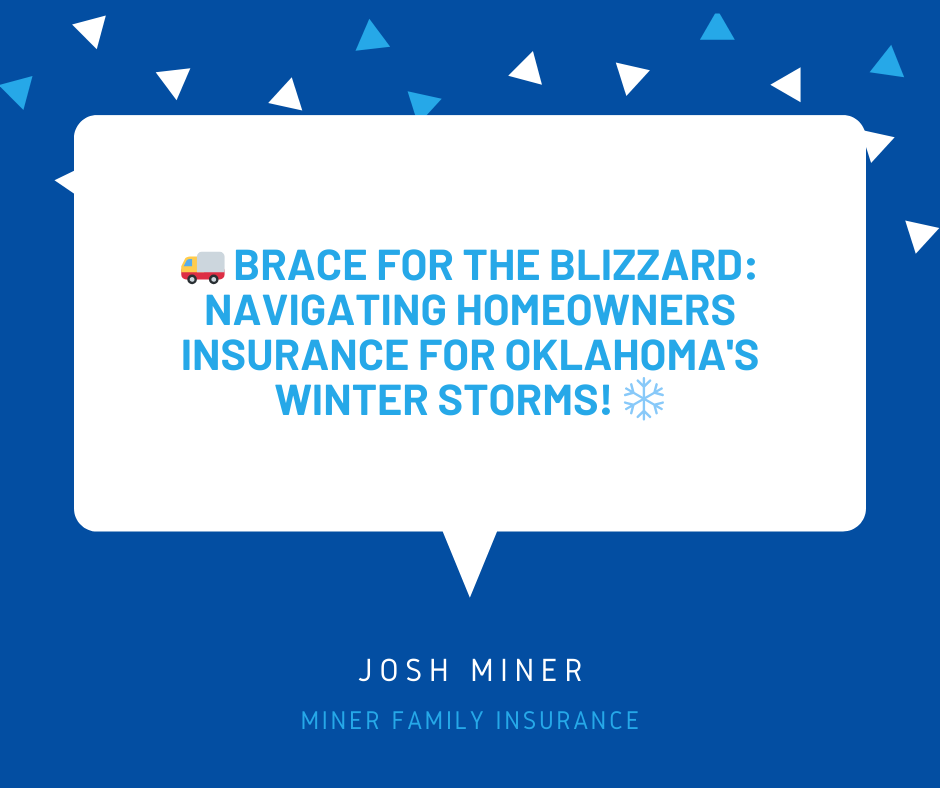
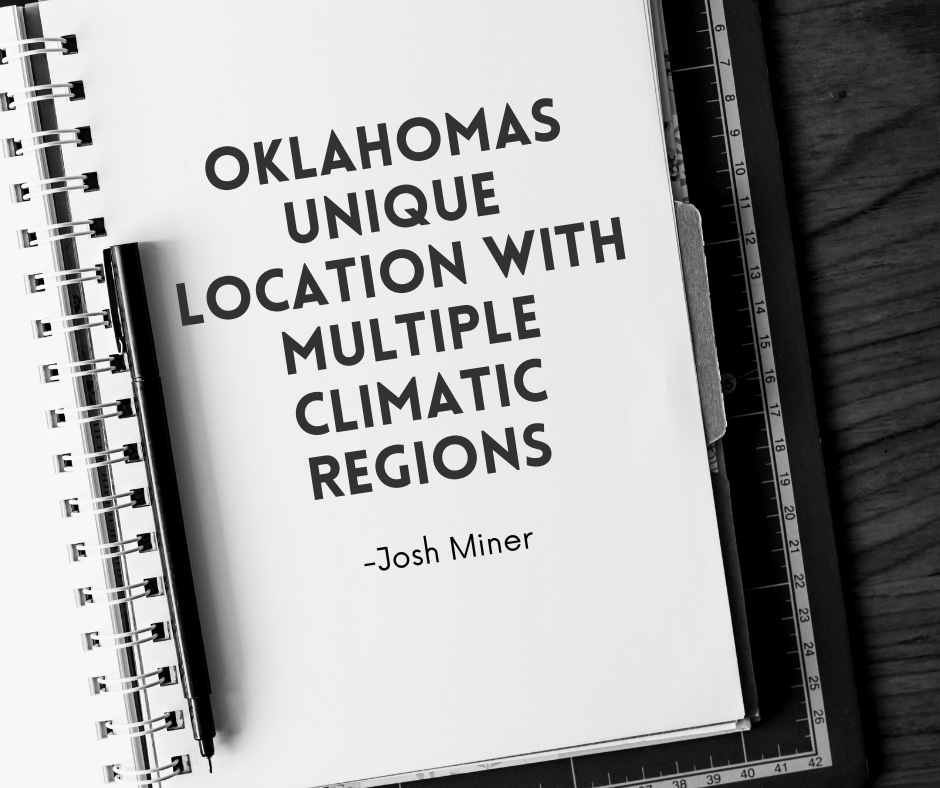
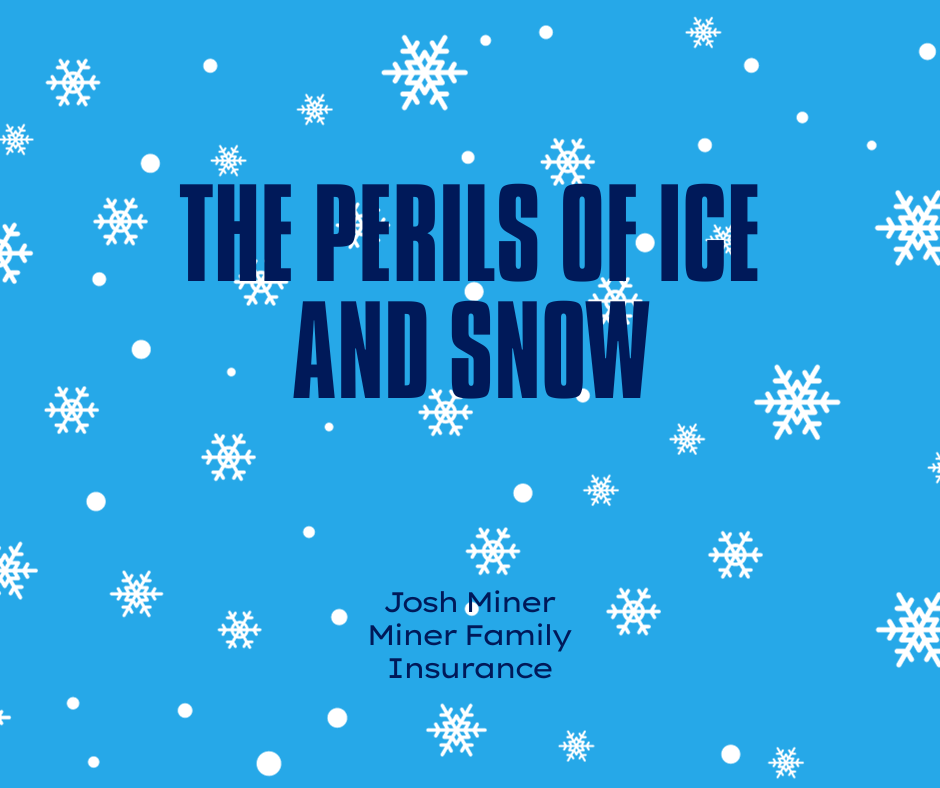
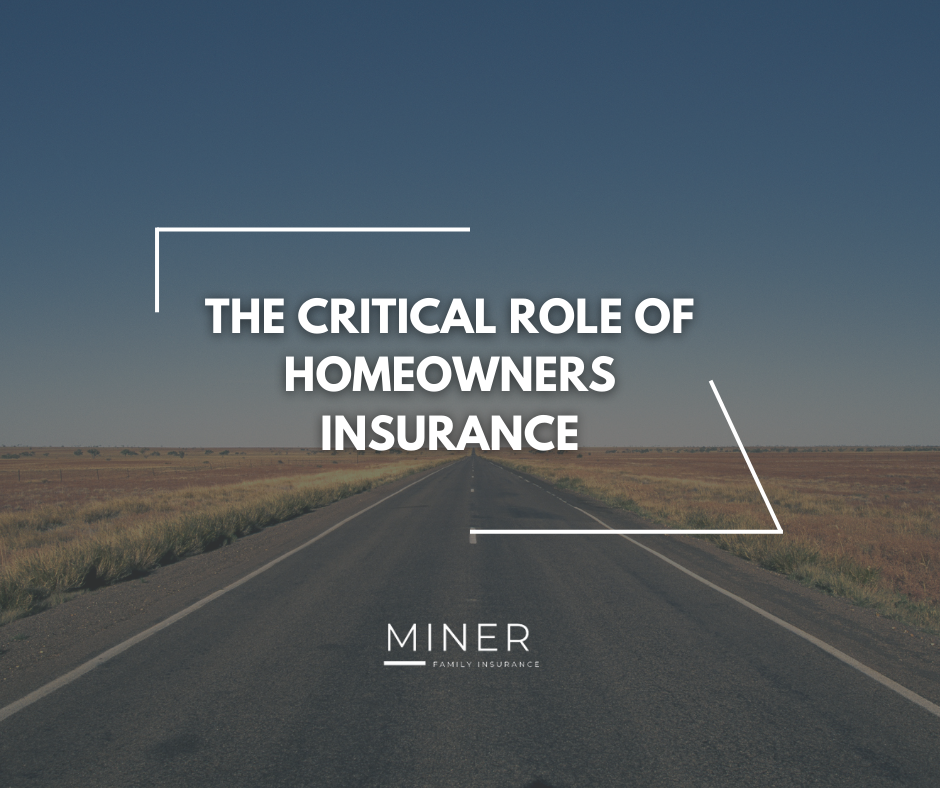
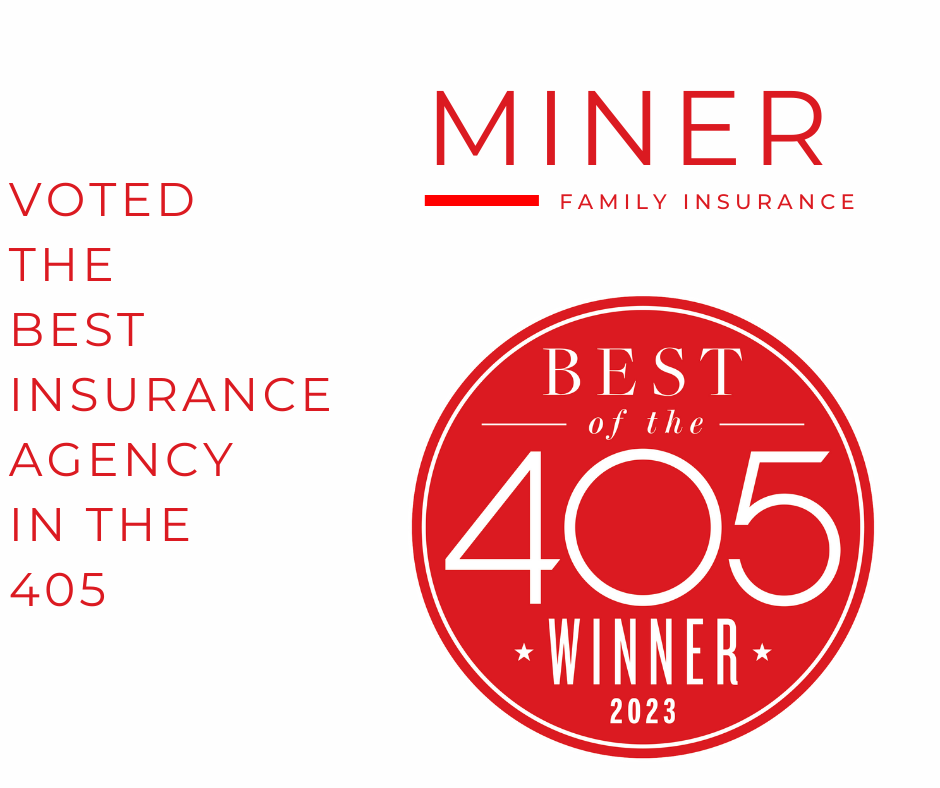
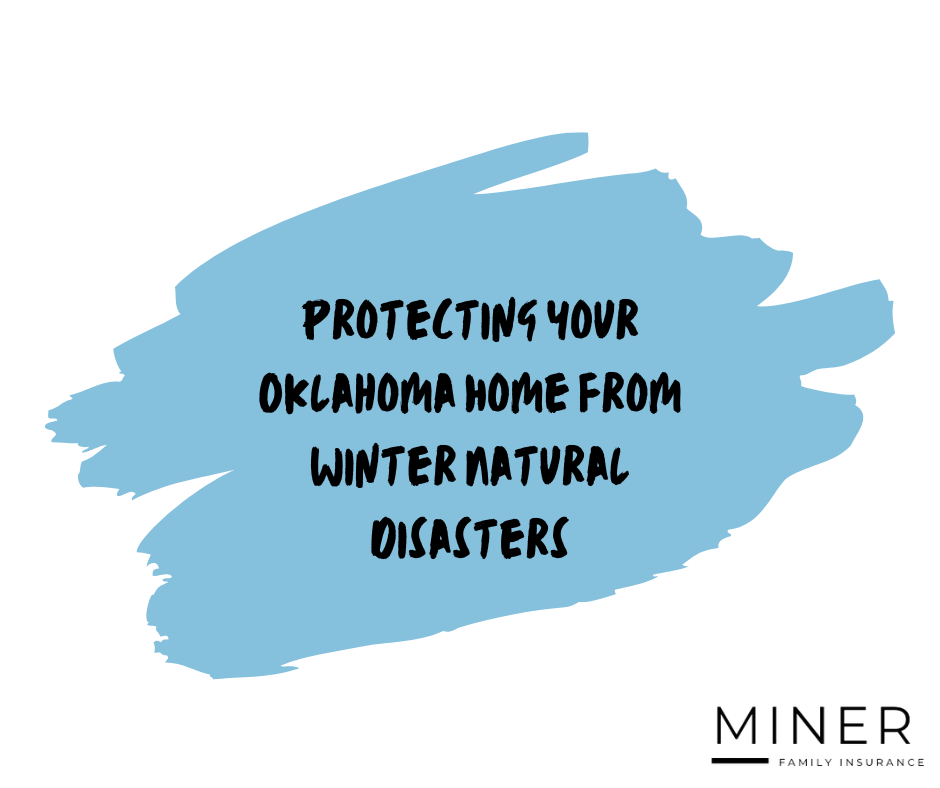
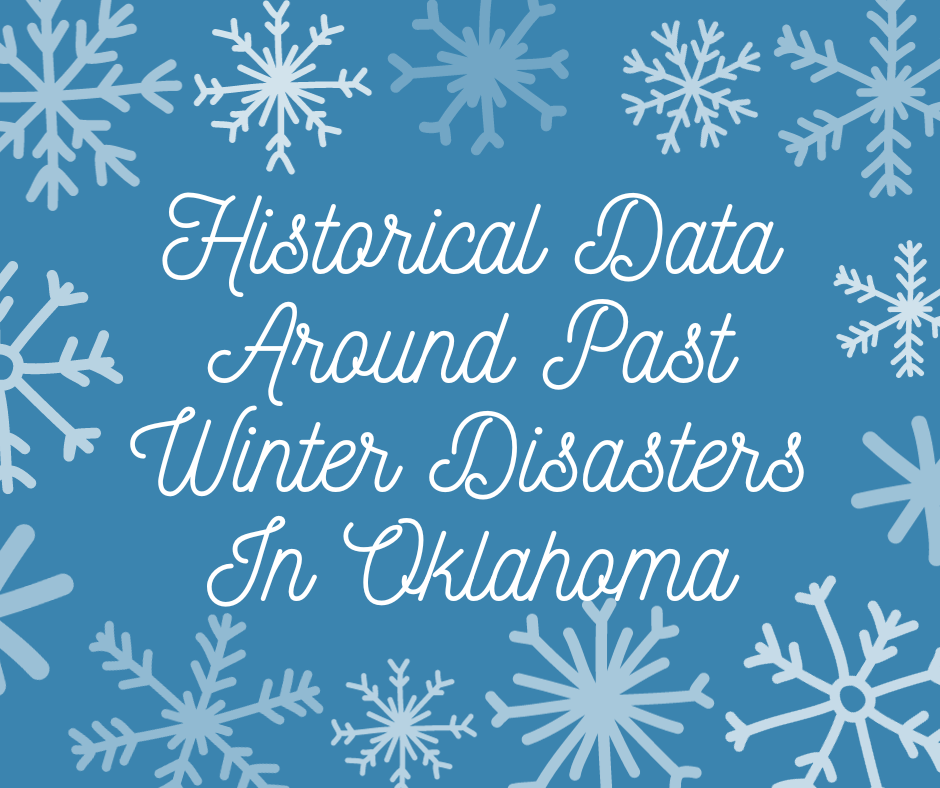
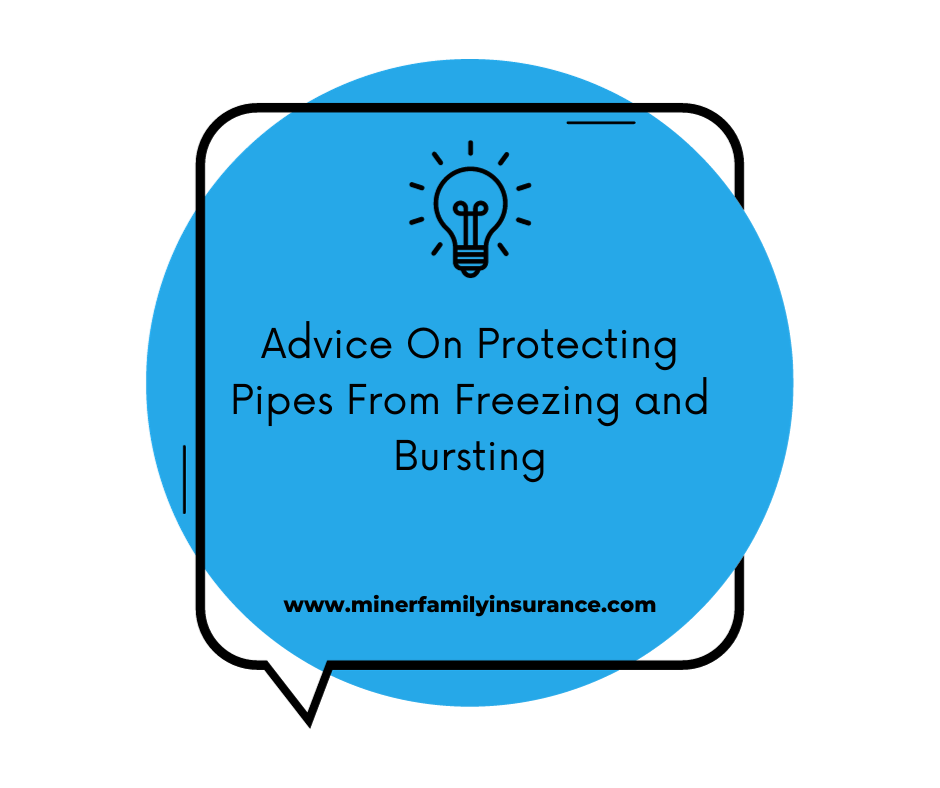
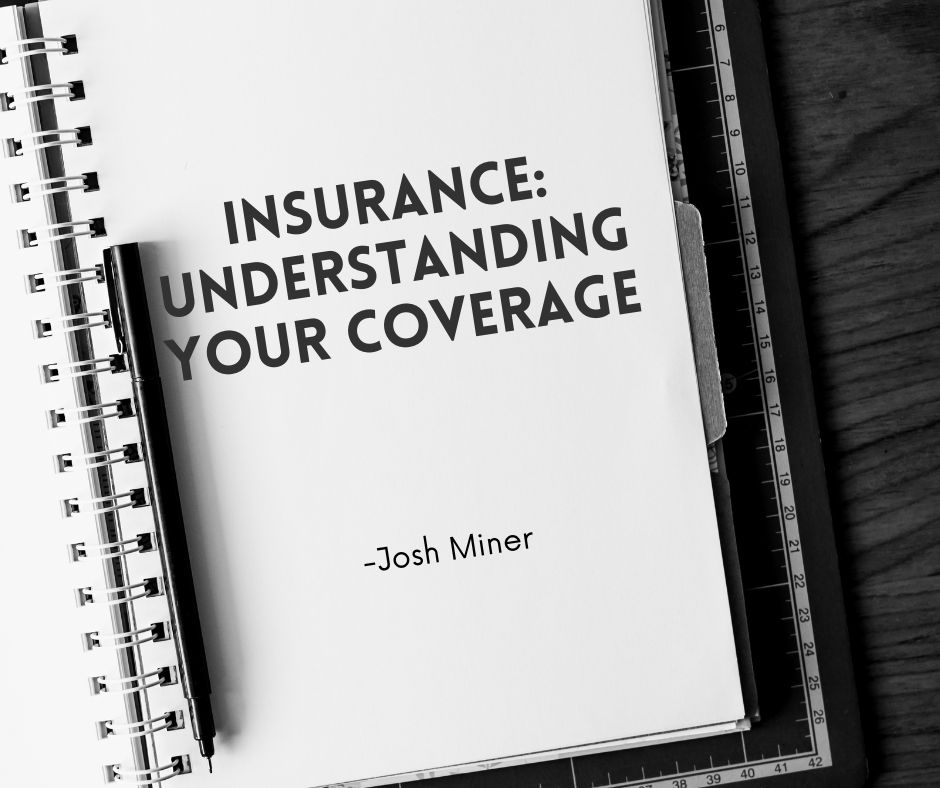
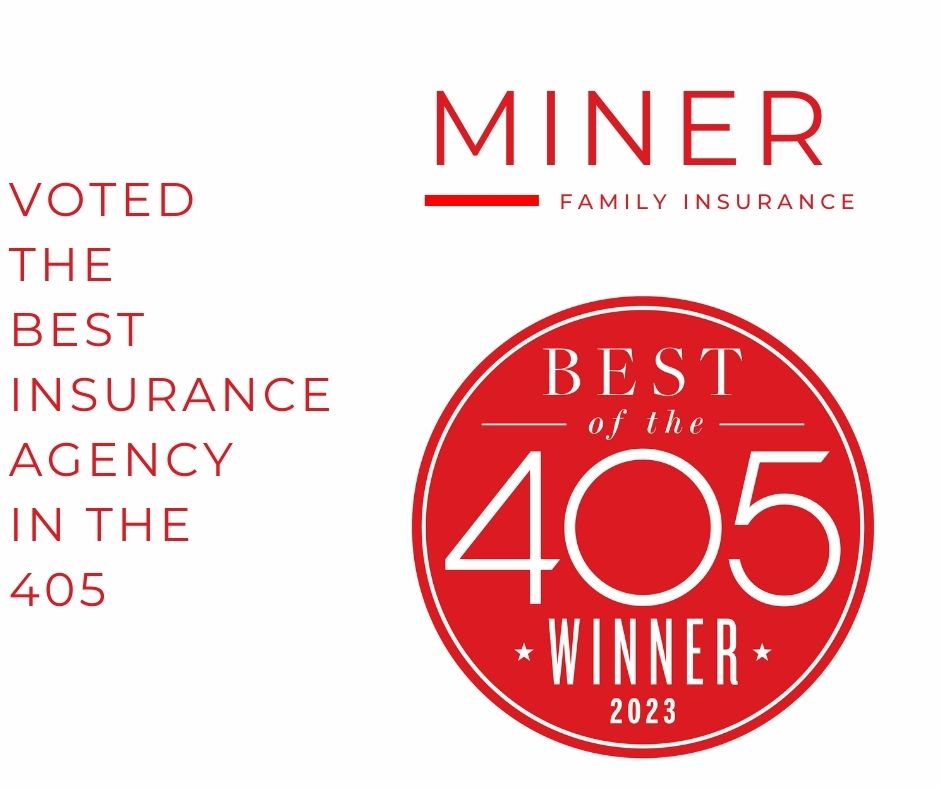
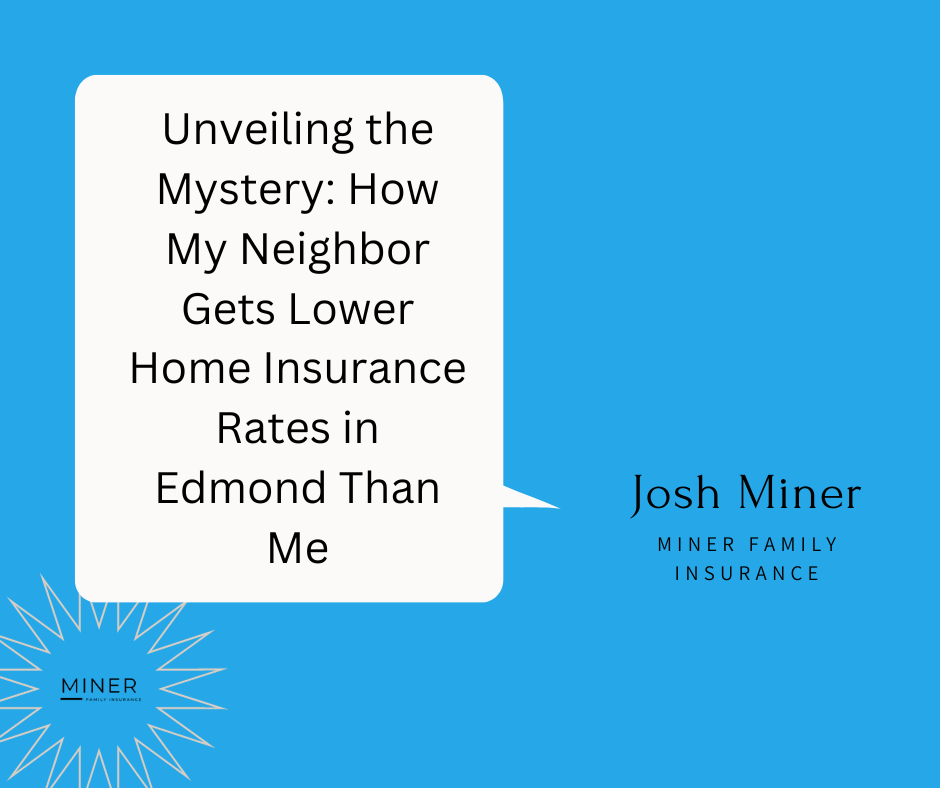



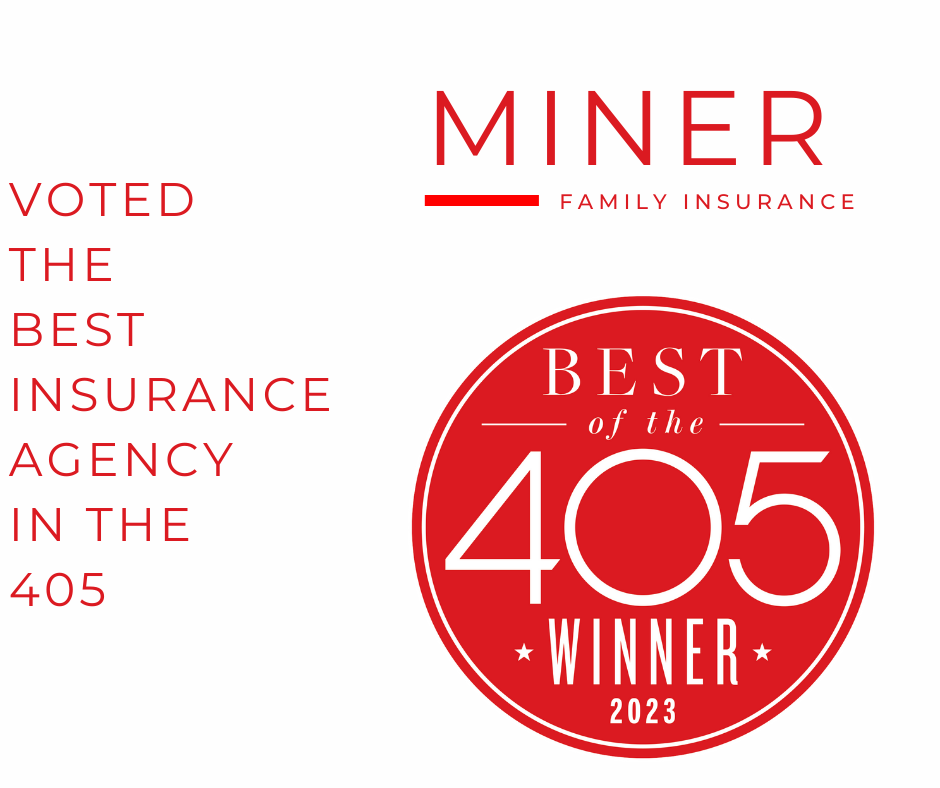
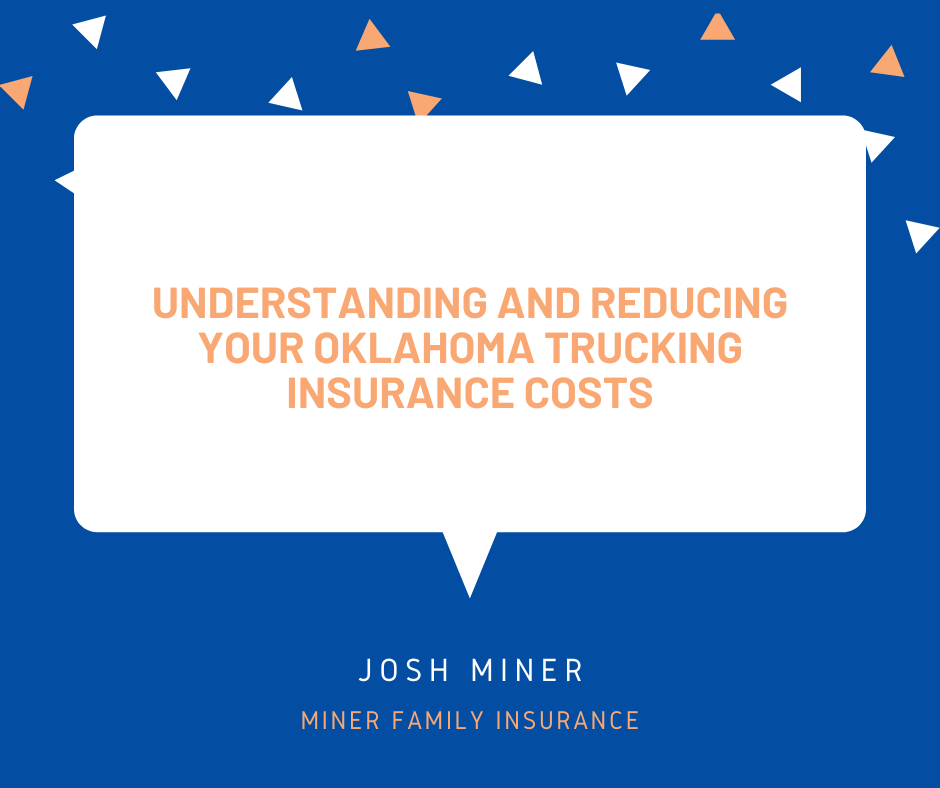
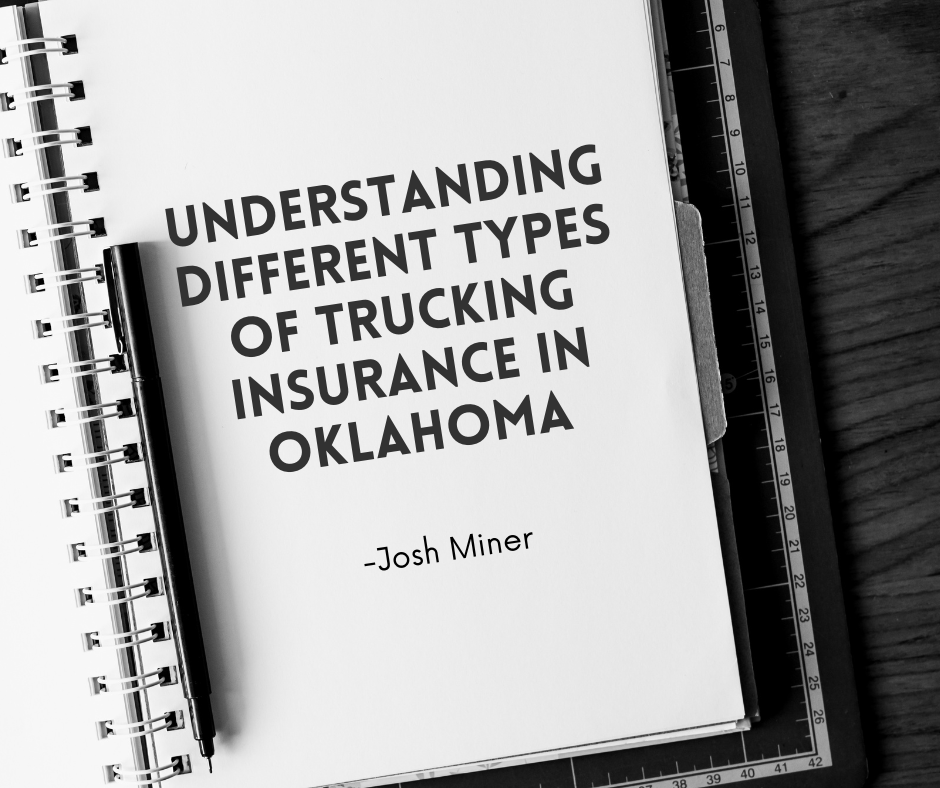
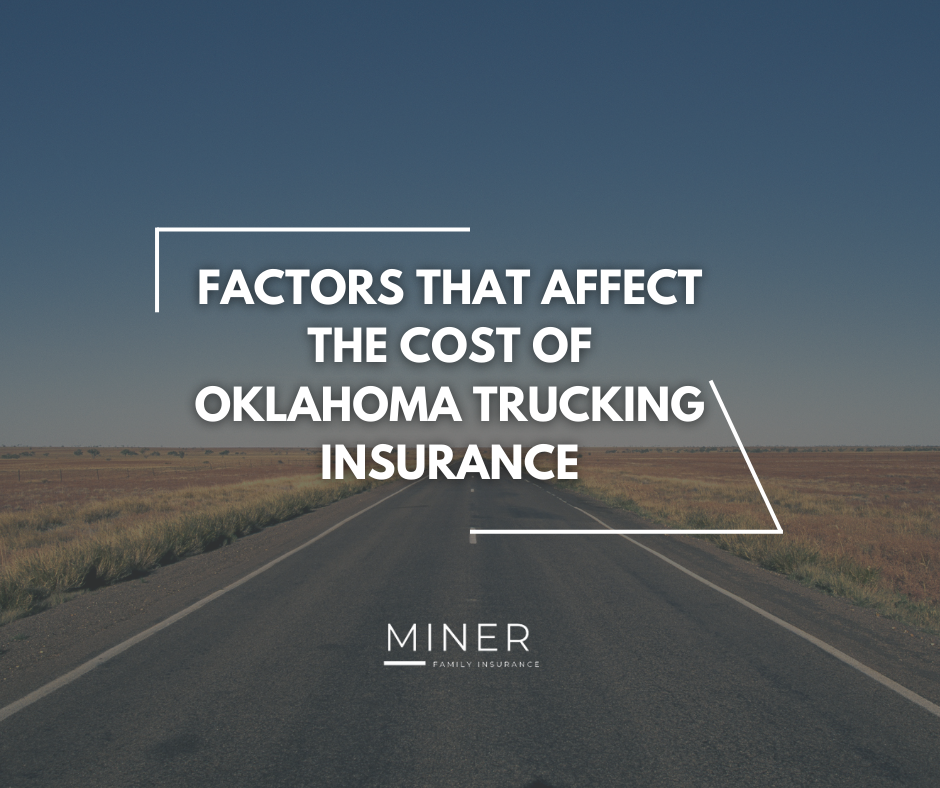
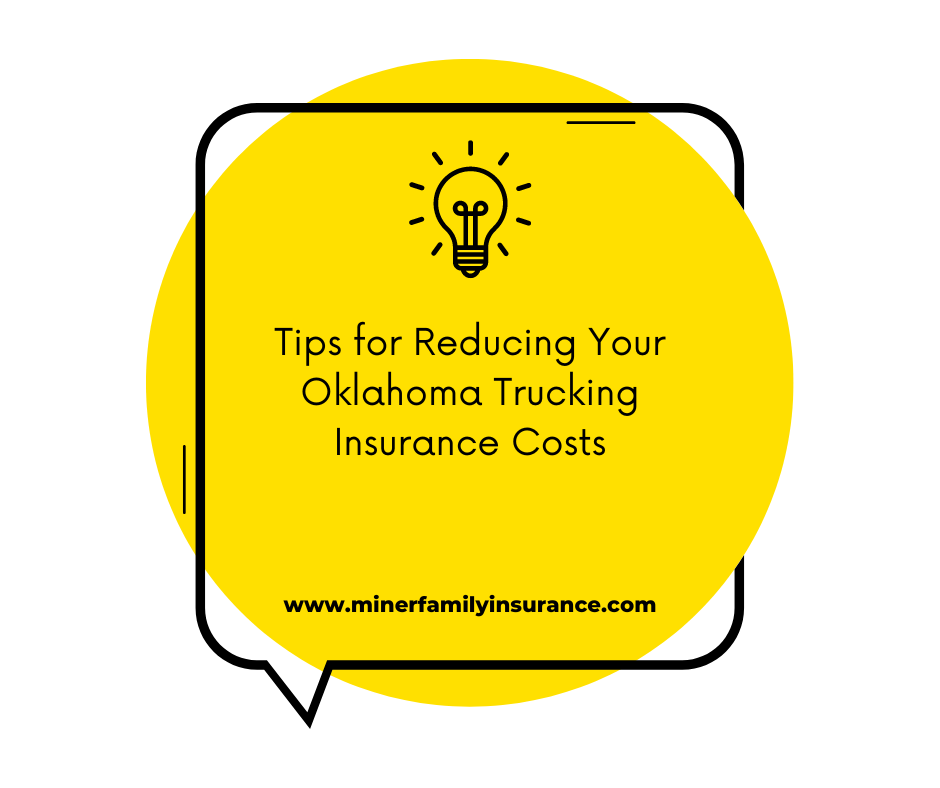
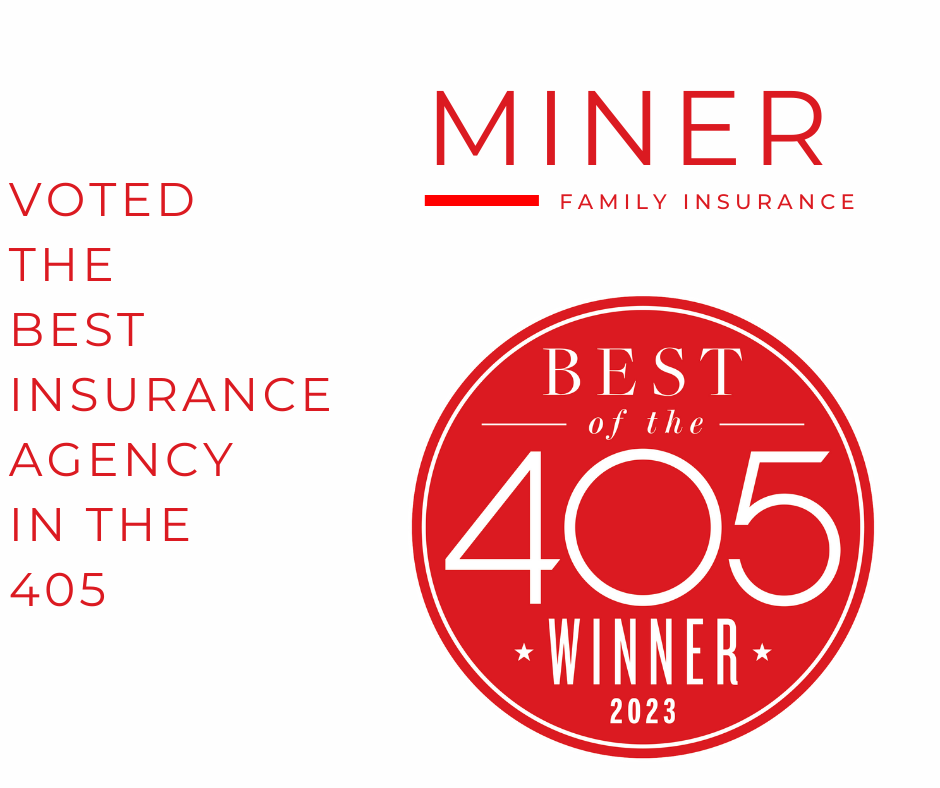
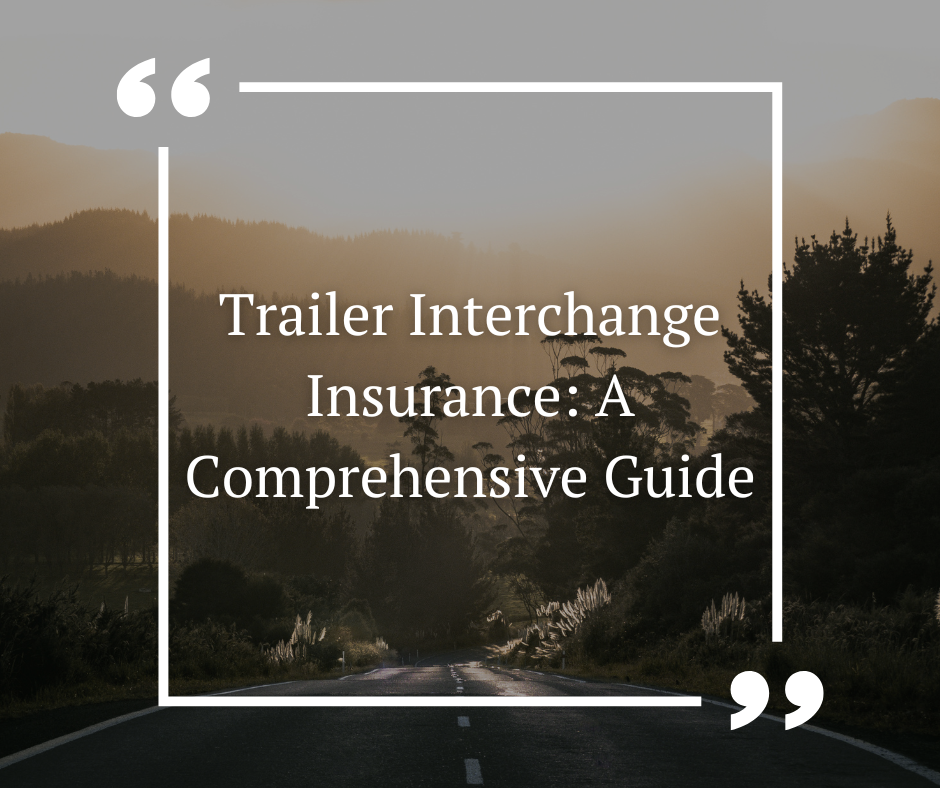
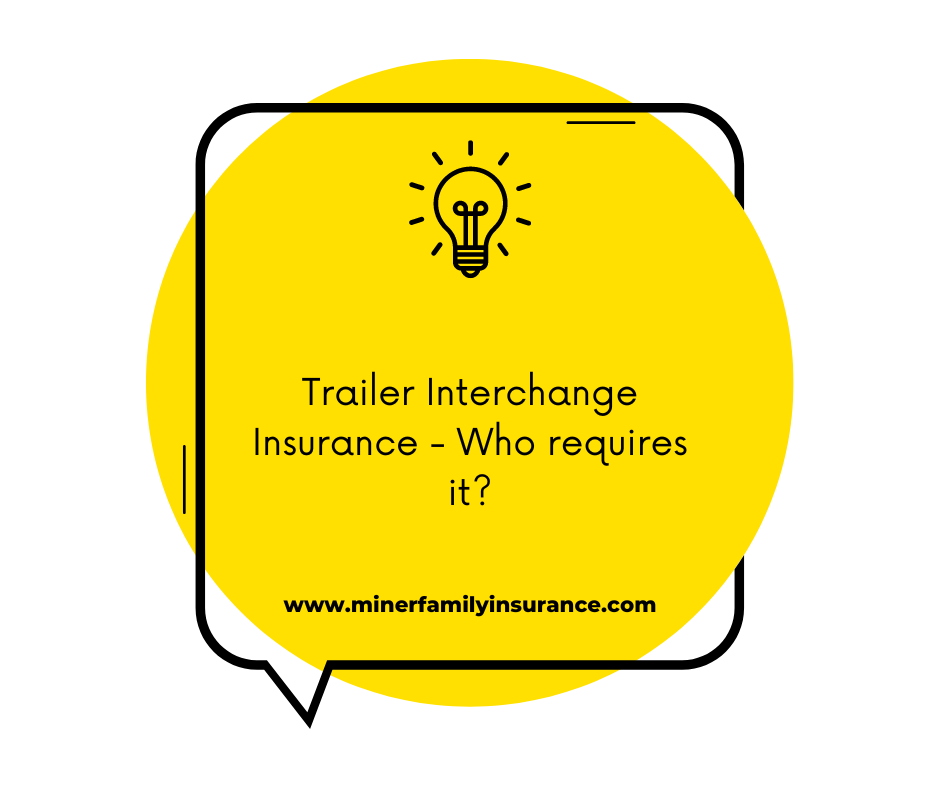
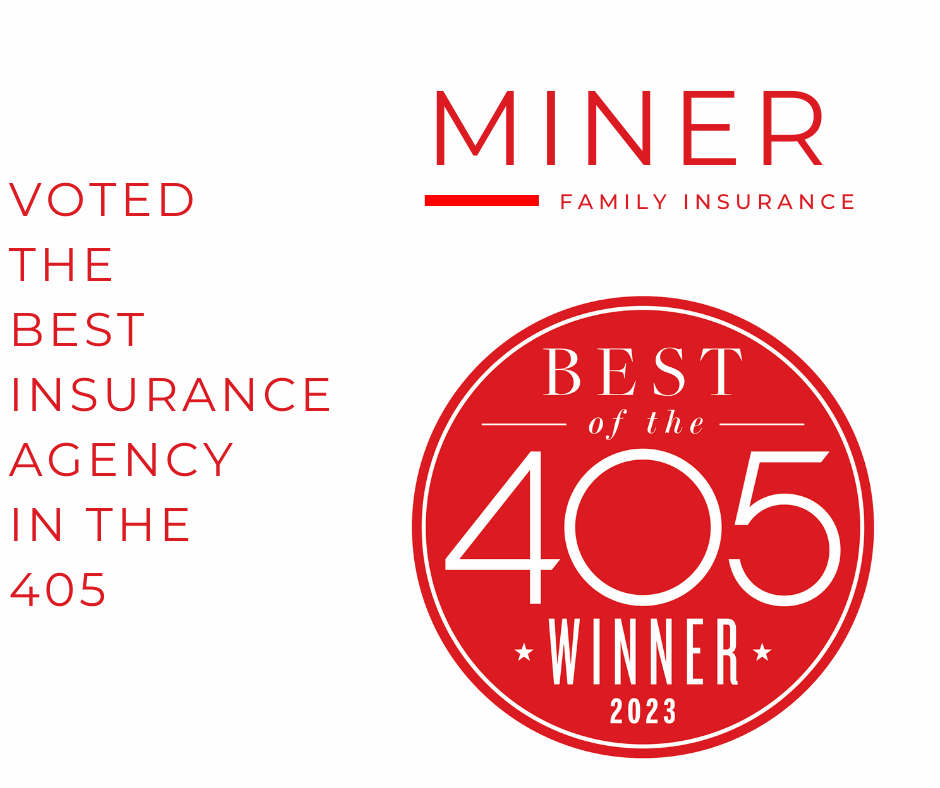

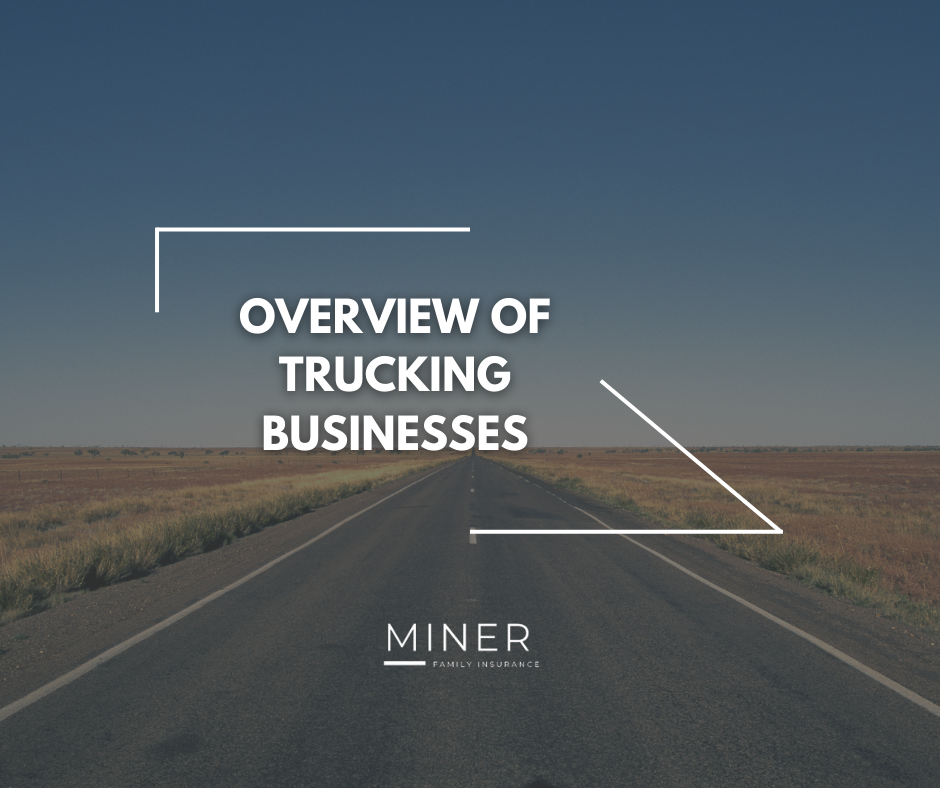
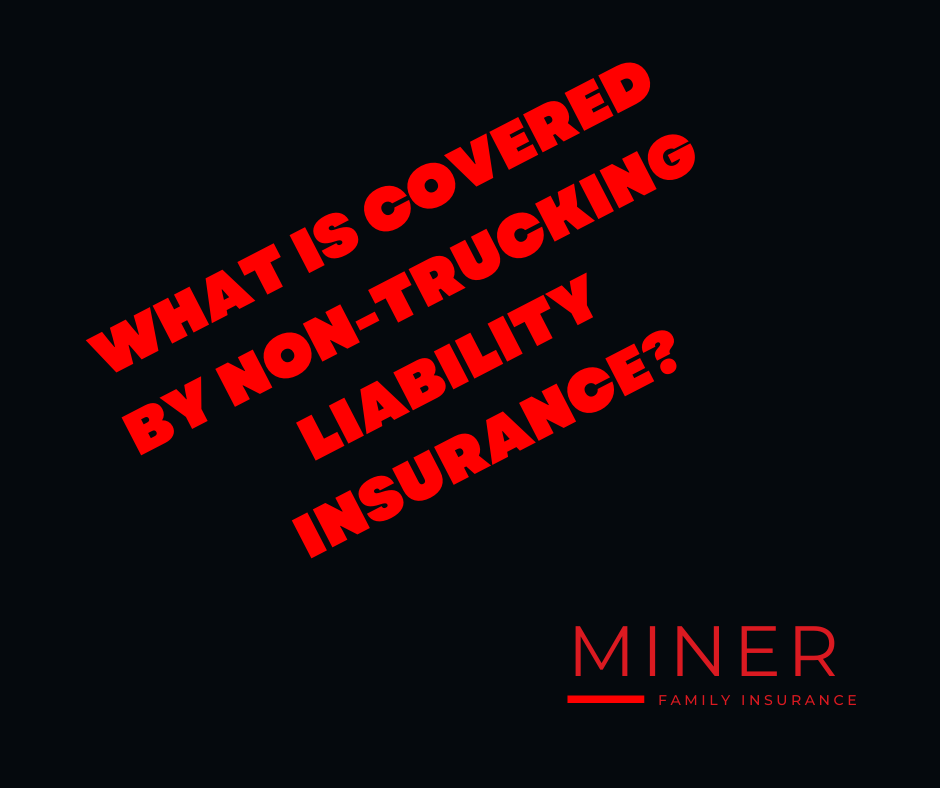
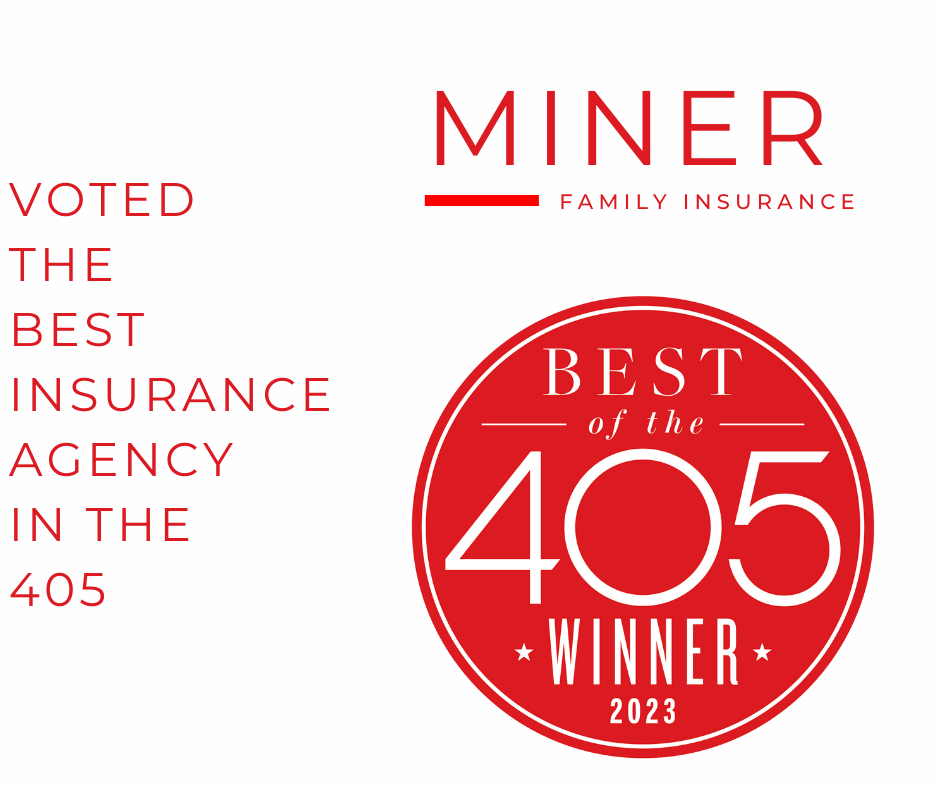
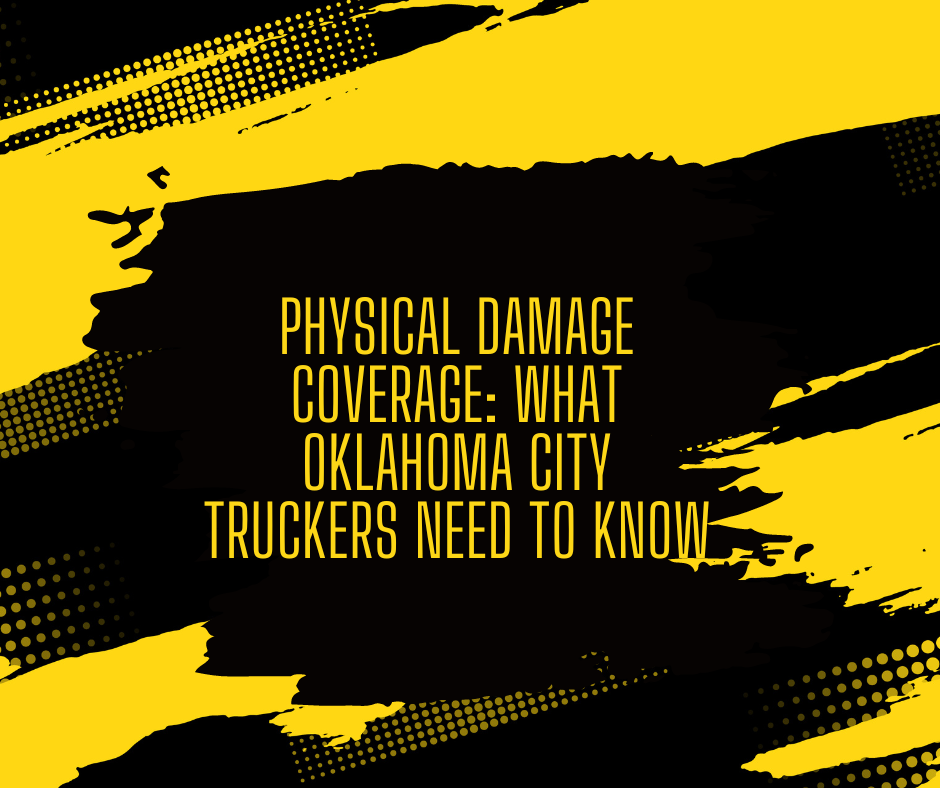
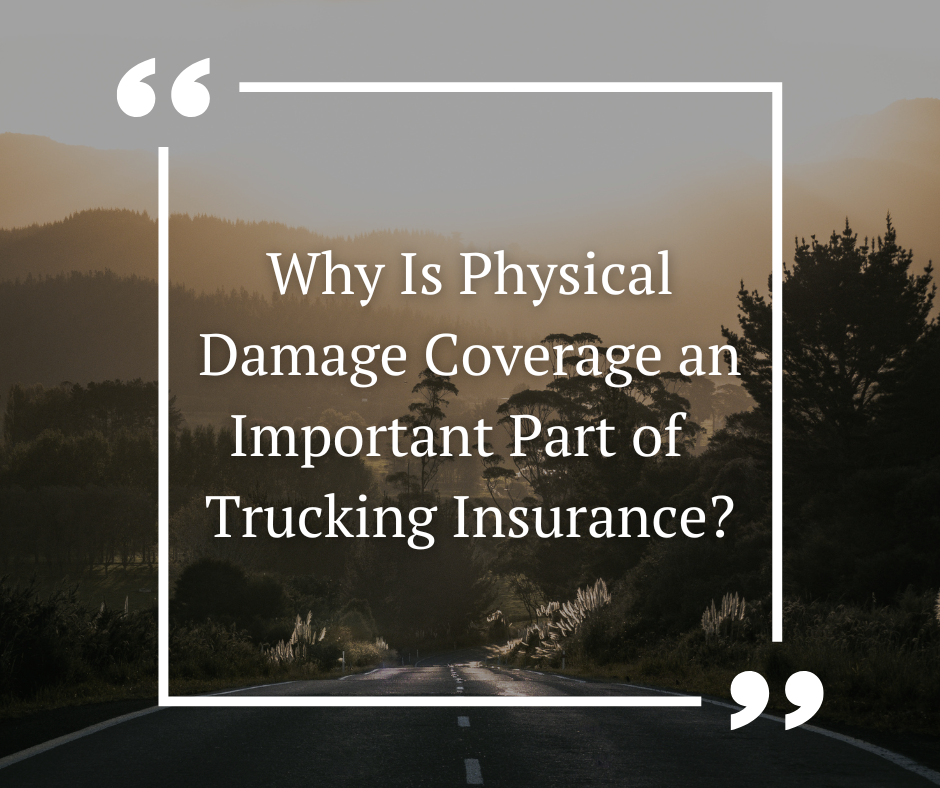
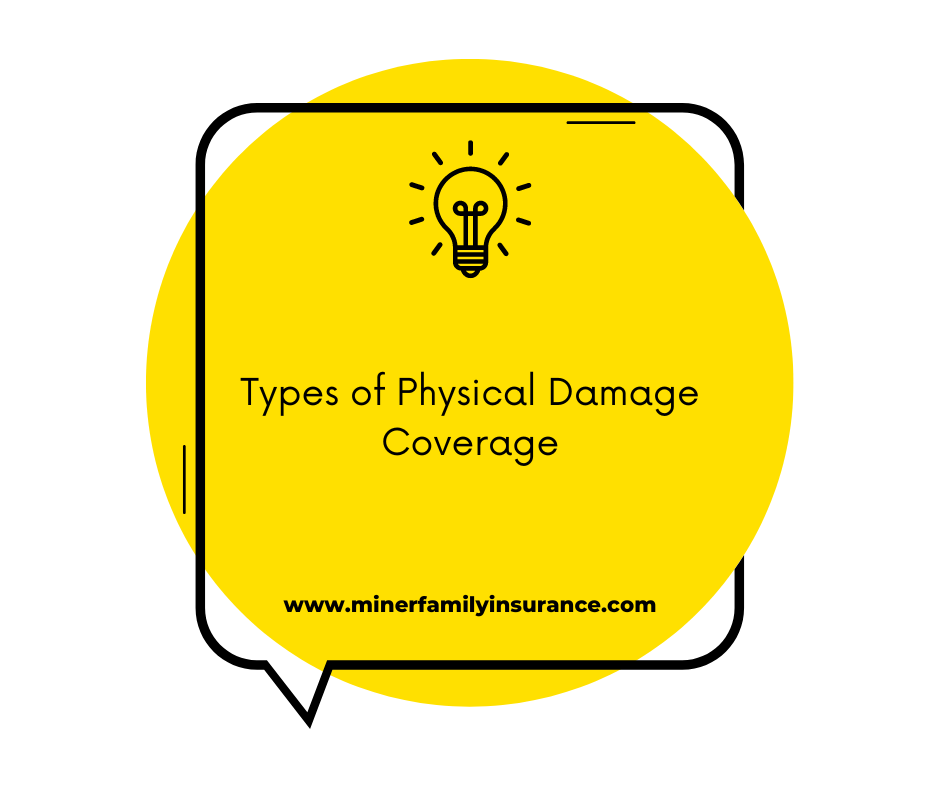
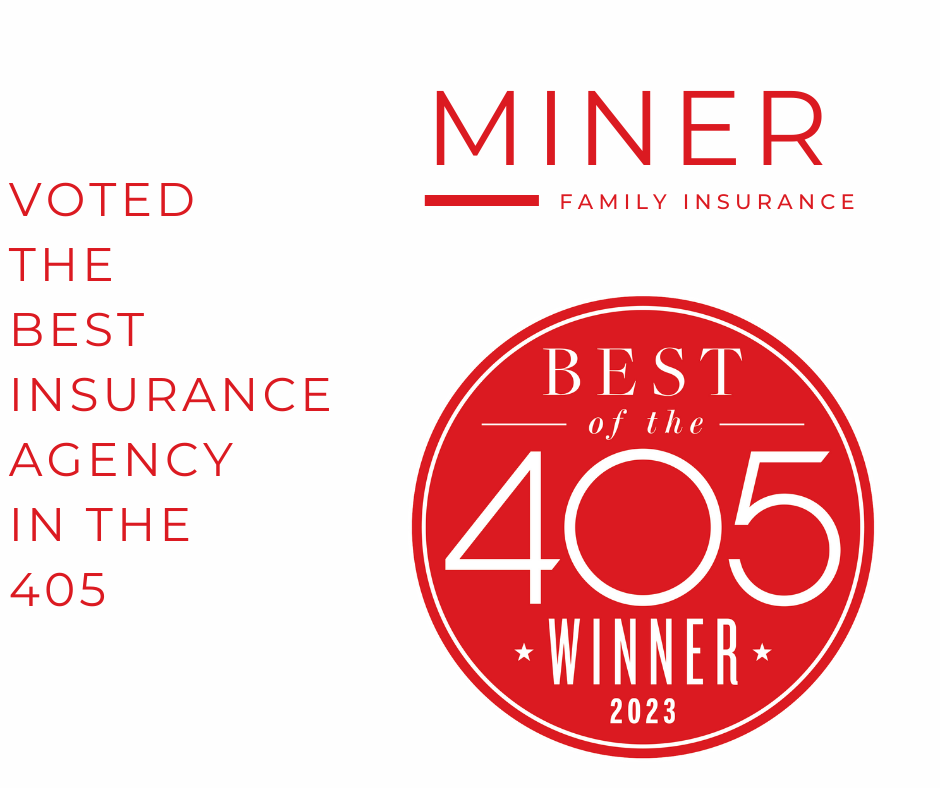
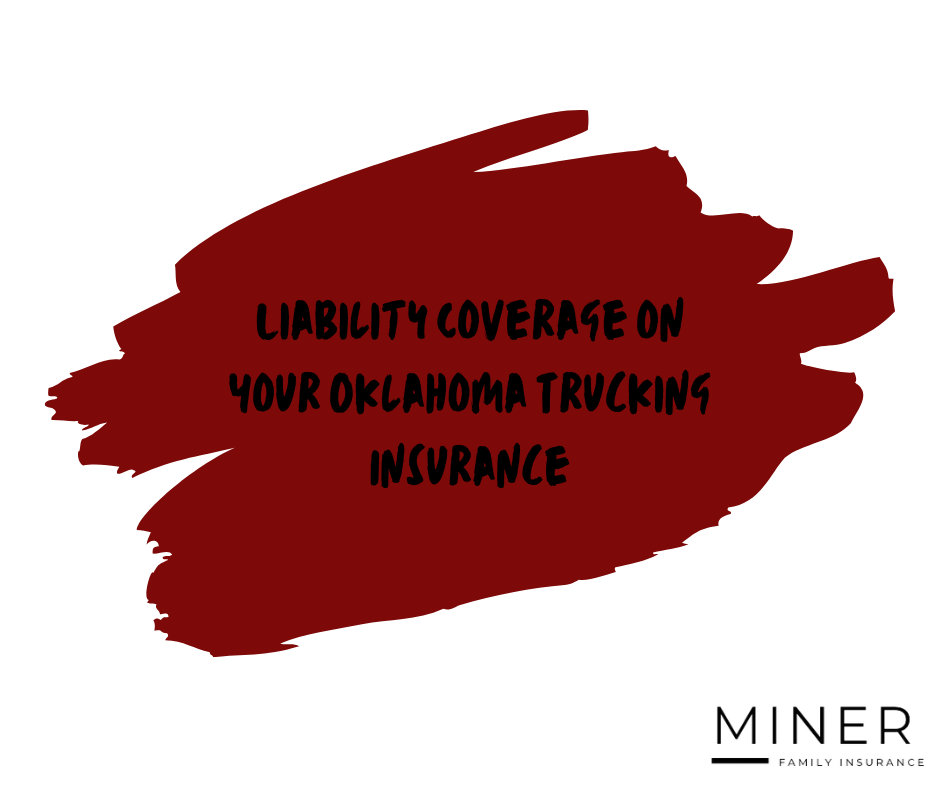
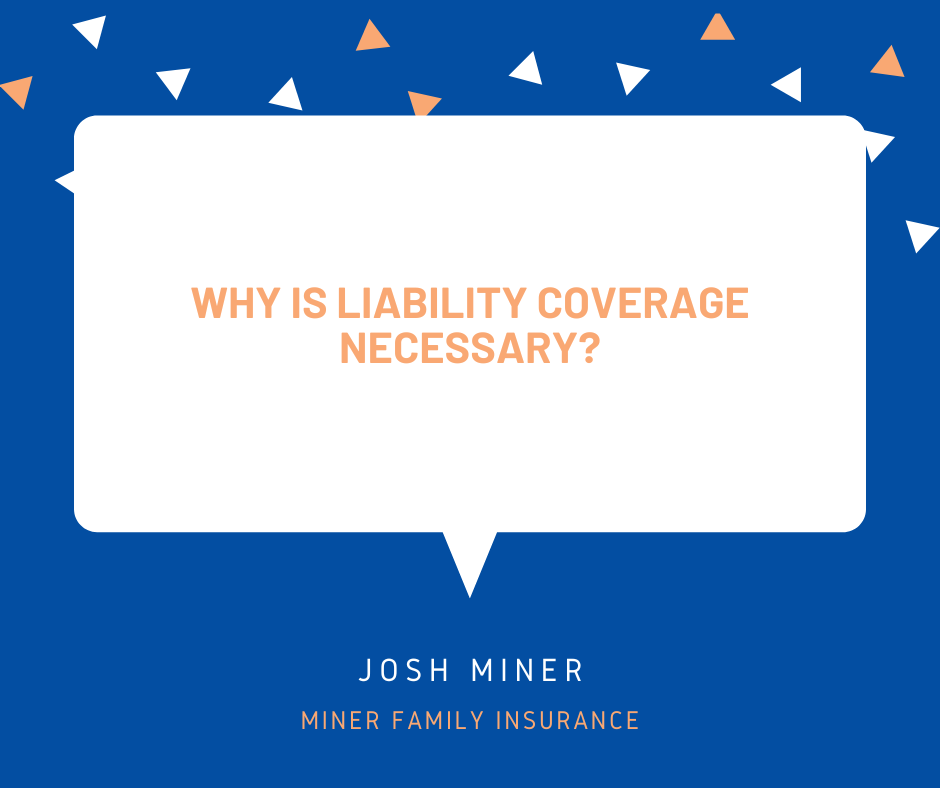
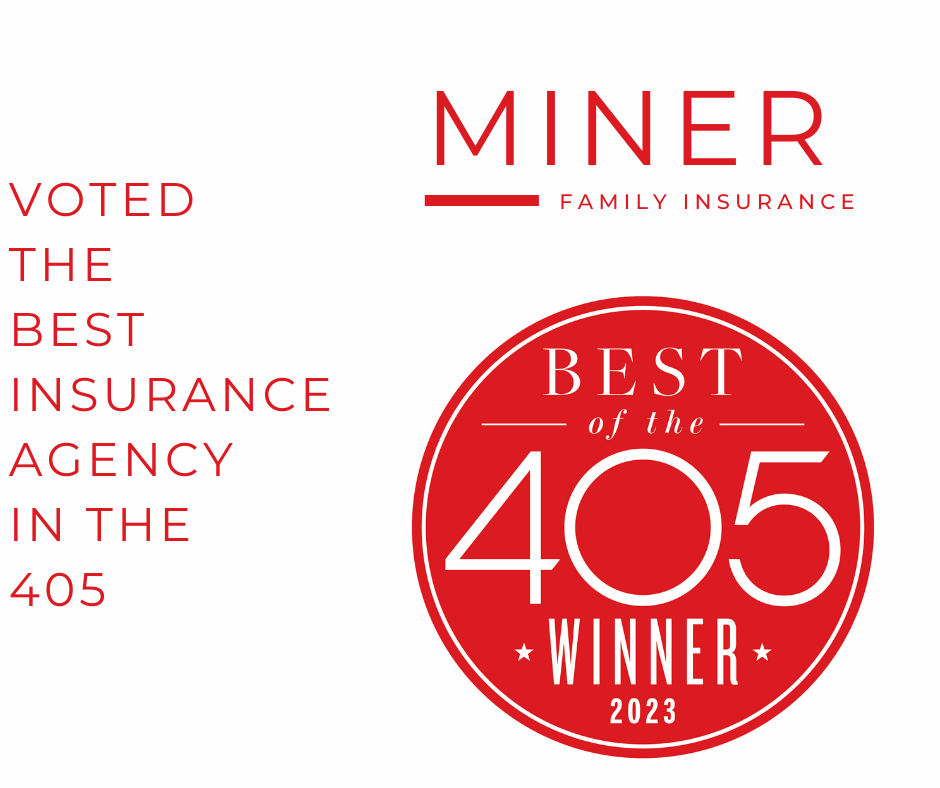
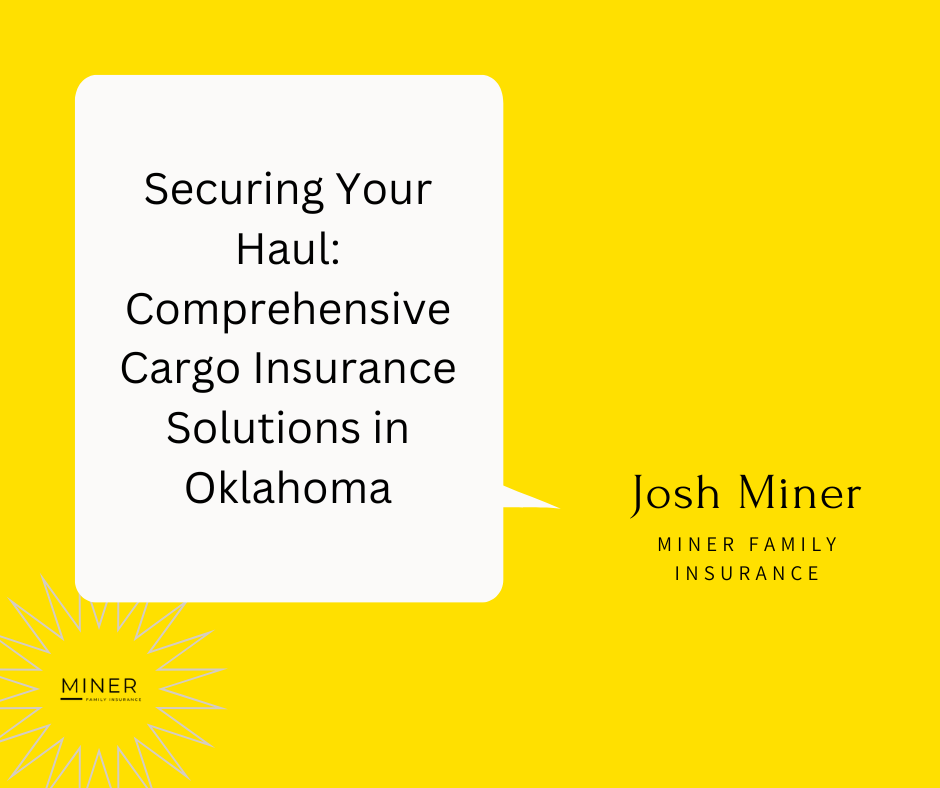
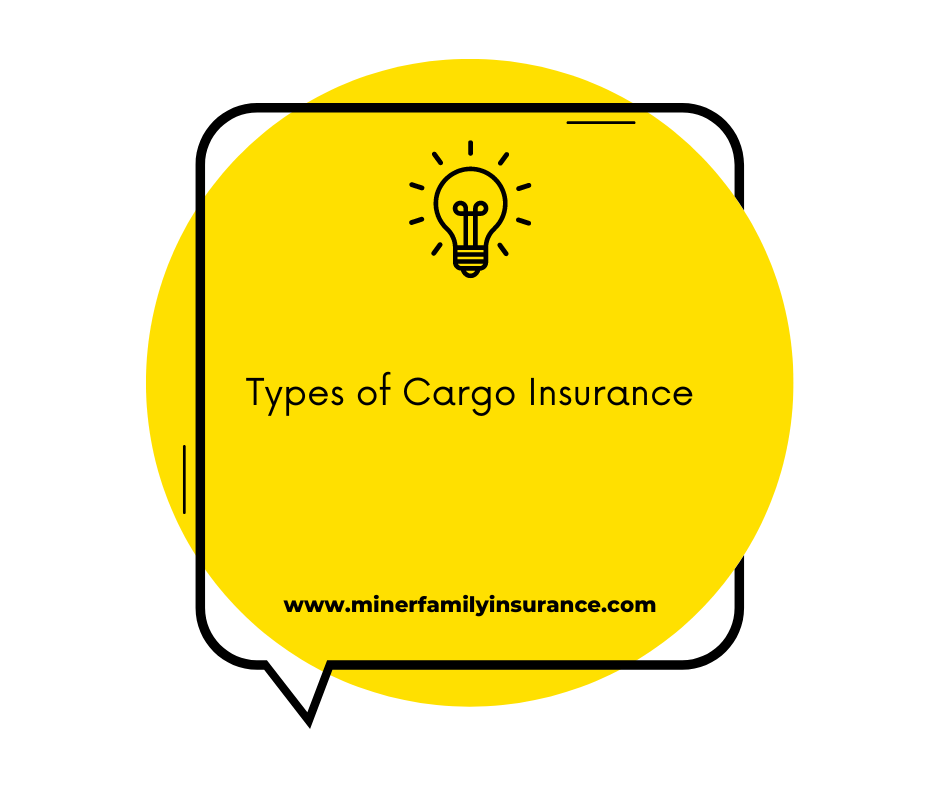
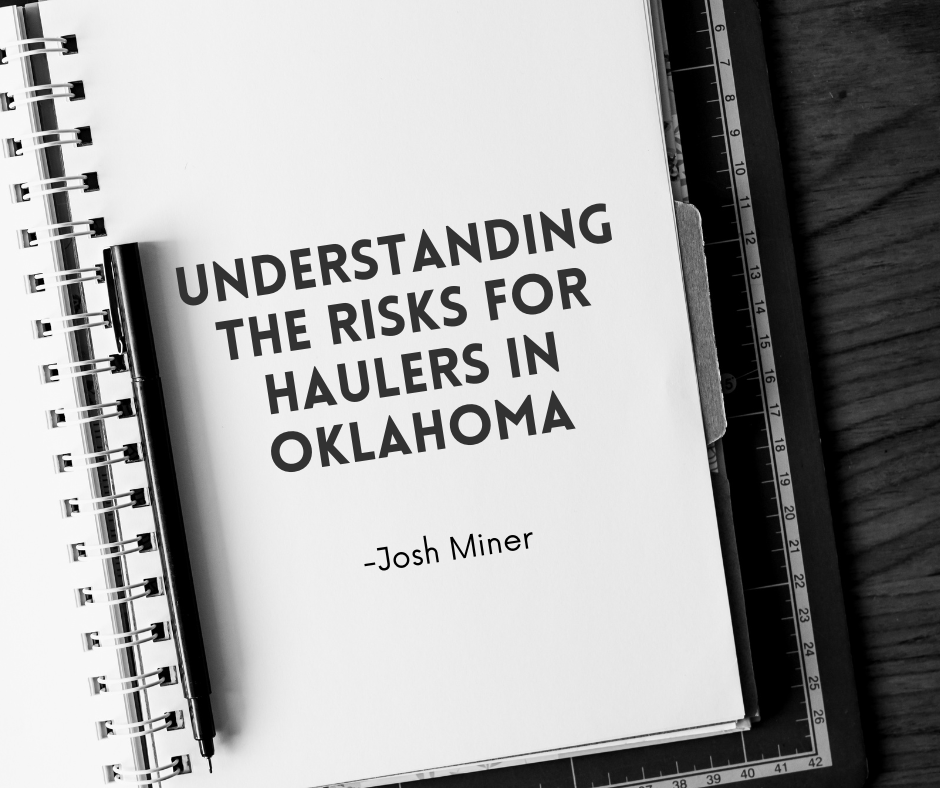
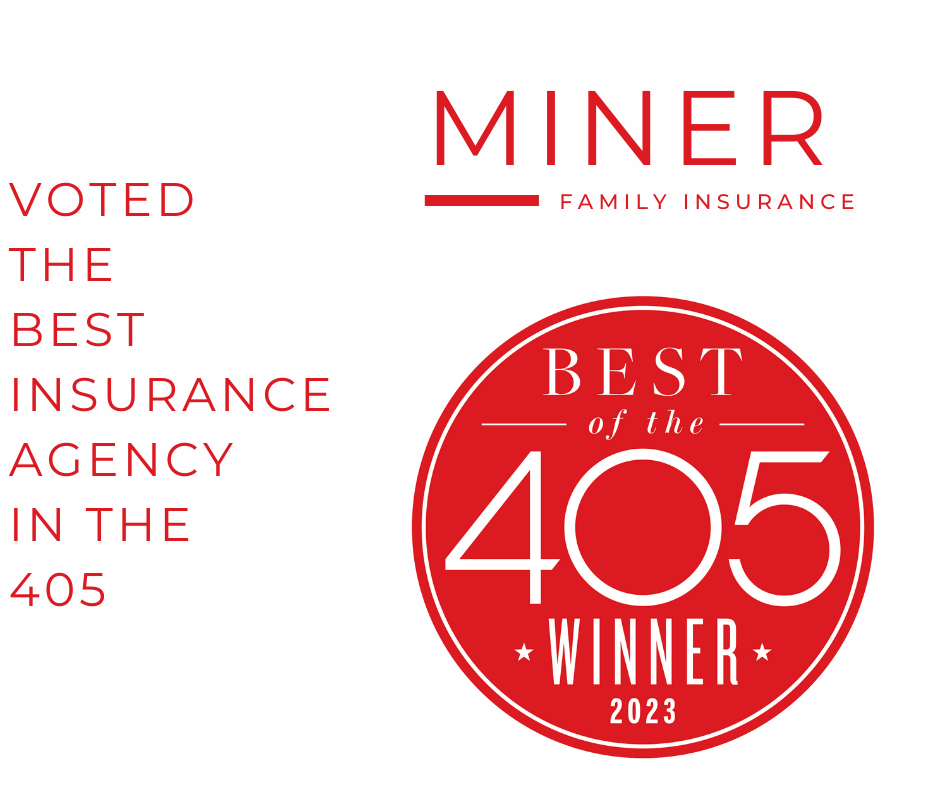
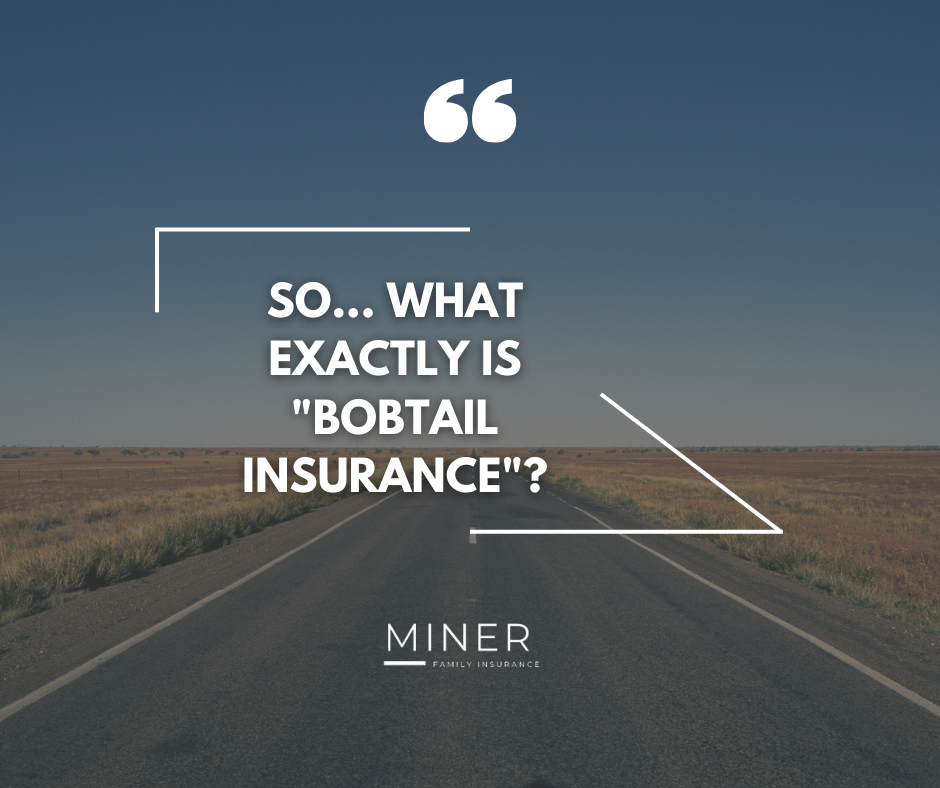
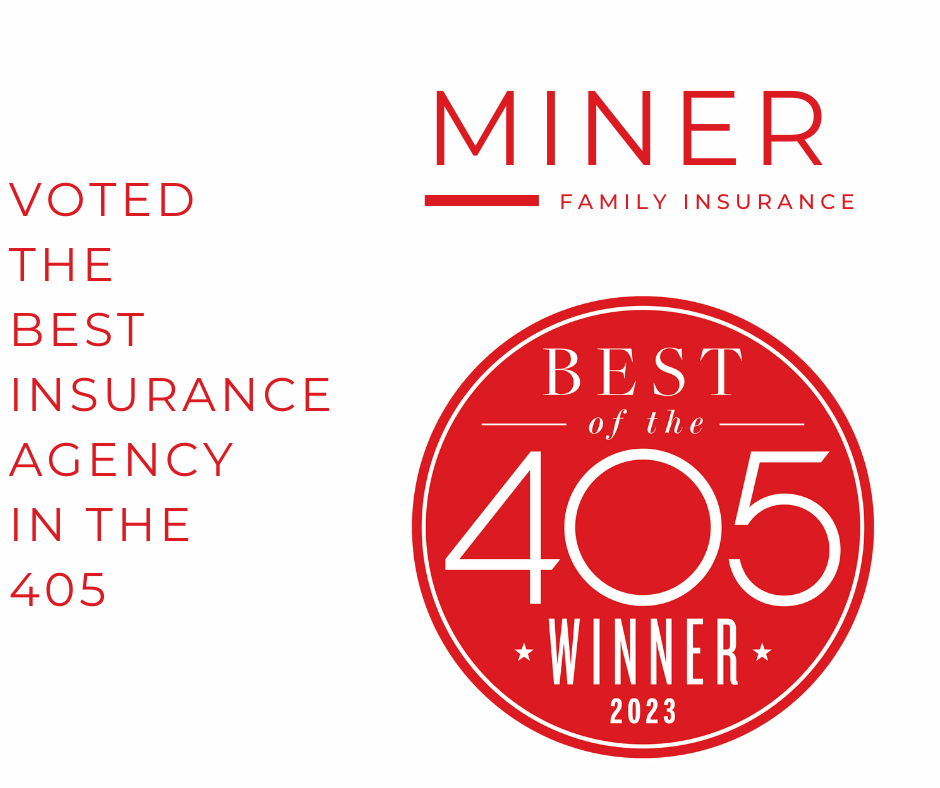
 RSS Feed
RSS Feed